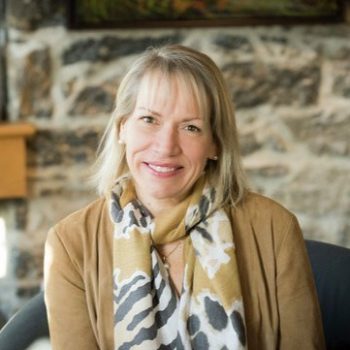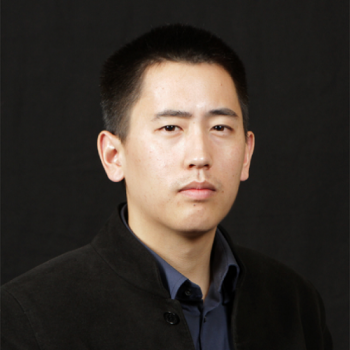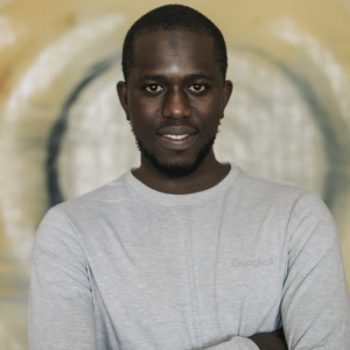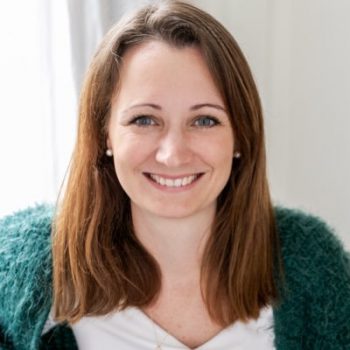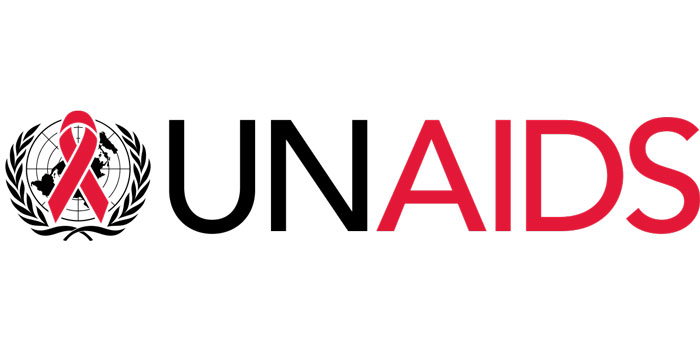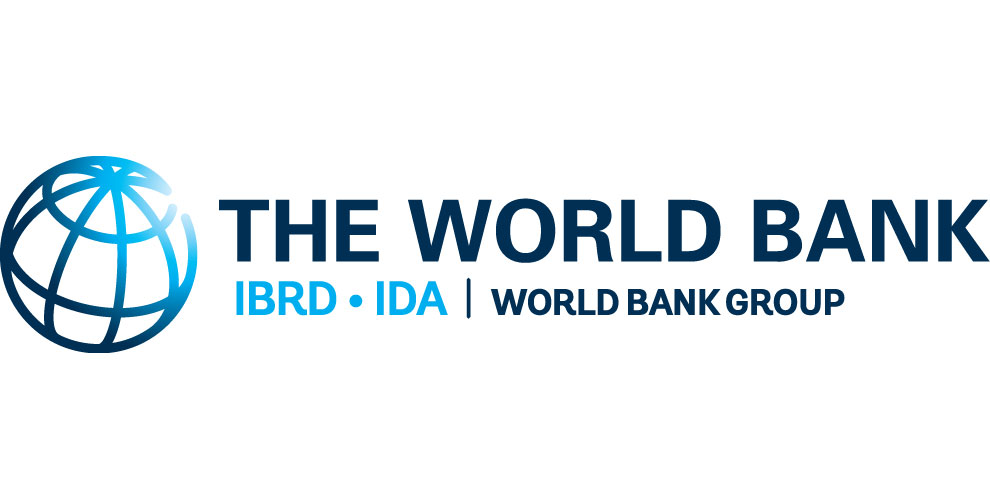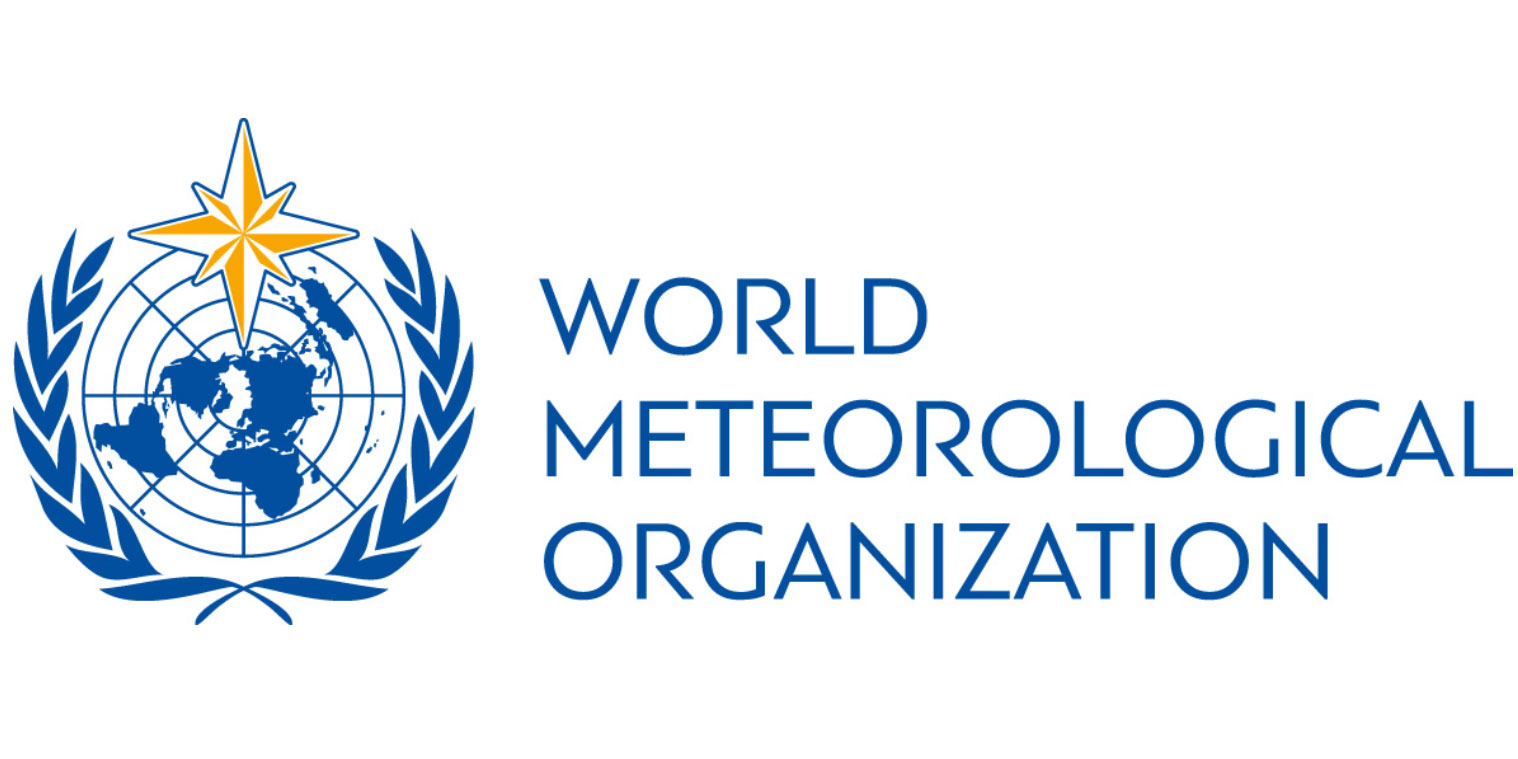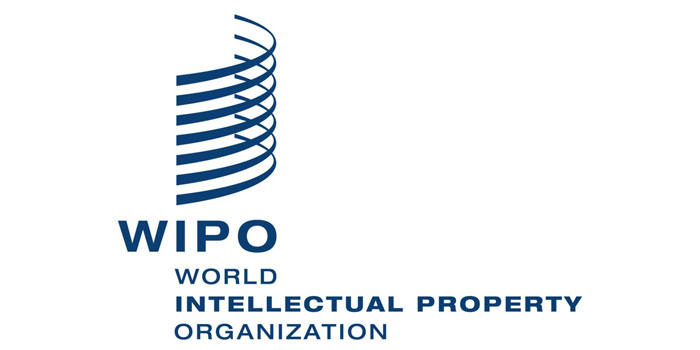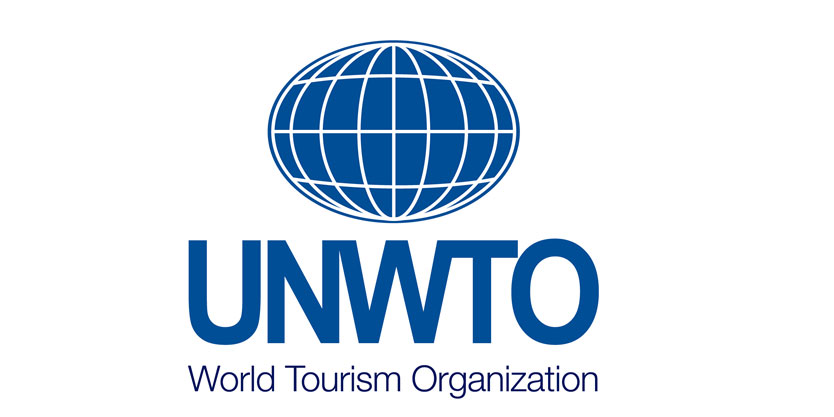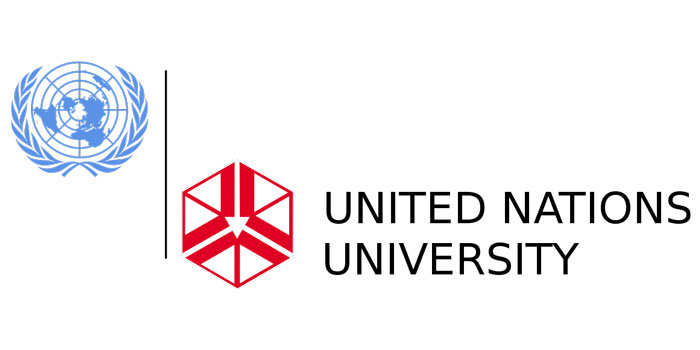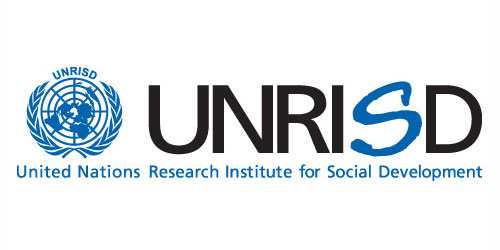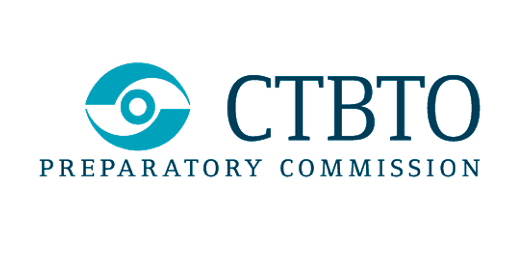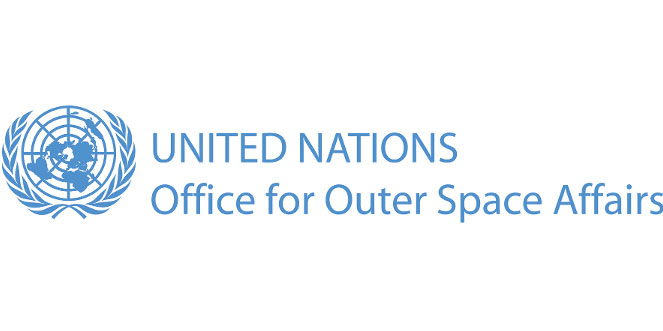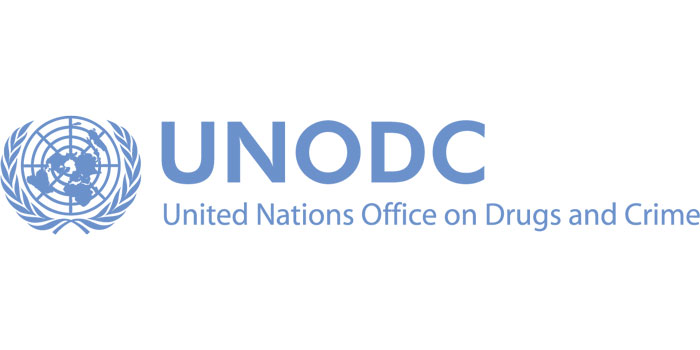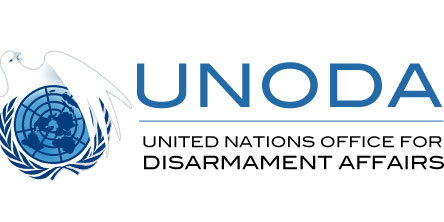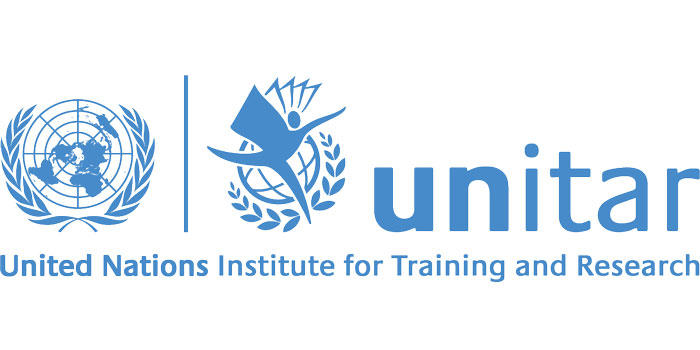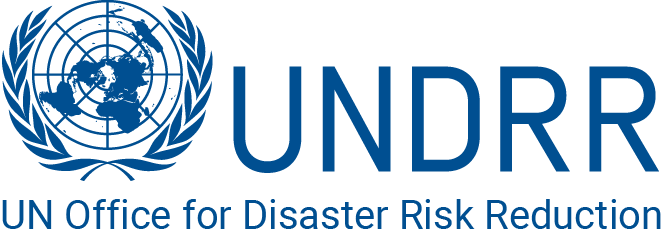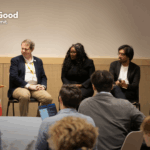AI for Good Brain Trust
The AI for Good Brain Trust is composed of an international panel of multi-stakeholder and inter-disciplinary partners, innovators and thinkers from industry, UN agencies, NGOs, civil society, member states, academia, start-ups, media and the arts who assist in identifying and curating high-impact sessions, collaborations and initiatives aimed at using AI to advance the UN SDGs.


Amir Banifatemi is the Chief Responsible AI Officer at Cognizant, where he leads the company’s global efforts to embed safety, transparency, and accountability into AI systems and services. He oversees the design and implementation of Cognizant’s Responsible AI framework, ensuring alignment with international standards such as ISO/IEC 42001, NIST AI RMF, and other emerging governance models across sectors and jurisdictions.
A prominent voice in international AI policy and governance, Amir contributes to key initiatives at the OECD, GPAI, IEEE, and the ITU, where he focuses on operationalizing responsible AI and advancing cross-sector standards for AI safety and accountability. He co-leads working groups on AI Futures, AI-Enabled Investments, and Trustworthy AI Ecosystems.
Previously, Amir served as Chief Innovation and Growth Officer at XPRIZE, where he launched and directed global competitions addressing grand challenges in AI, climate, and health. He co-founded the AI for Good movement and helped establish the AI for Good Global Summit in partnership with the ITU, aligning AI innovation with the UN Sustainable Development Goals.
With more than 25 years of experience at the intersection of innovation, deep technology, and investment, Amir has helped shape and scale breakthrough initiatives across sectors—from public institutions like the European Space Agency and European Commission to venture-backed technology startups. He brings a systems-level approach to advancing emerging technologies such as AI, quantum computing, and predictive systems, with a consistent focus on real-world impact, interdisciplinary collaboration, and sustainable value creation.
He holds degrees in Electrical Engineering, an MBA, and a Doctorate in System Design and Cognitive Sciences.
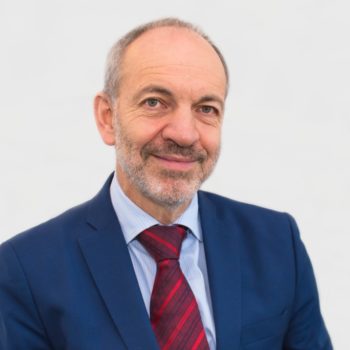
Dr. Reinhard Scholl is former Deputy to the Director of the Telecommunication Standardization Bureau (TSB) since September 2002. Previously he has been with Siemens in Munich, Germany and with ETSI (European Telecommunications Standards Institute). He has also served on the ICANN Board. He received a Ph.D. in physics from the University of Illinois, USA.
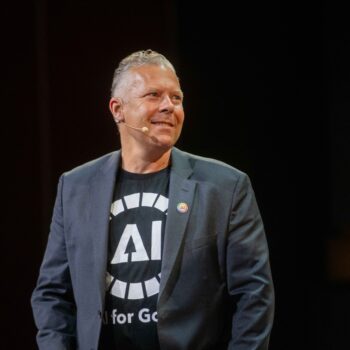
Based in Geneva, Switzerland, Frederic Werner is a recognized leader at the intersection of artificial intelligence, technology, and global development. As the Chief of Strategic Engagement at ITU, the United Nations’ specialized agency for Digital Technologies, and Chief of Strategy and Operations for AI for Good, Frederic drives initiatives that shape the future of AI’s role in solving humanity’s greatest challenges.
Frederic is a co-creator of the United Nations AI for Good Global Summit, a landmark platform connecting AI innovators with real-world problem owners to collectively advance the Sustainable Development Goals (SDGs). Under his stewardship, AI for Good has become a global hub for innovation, collaboration, and actionable solutions, redefining how AI is used for social good.
At ITU, Frederic leads transformative strategic initiatives, driving global collaboration in digital transformation and standards development to address critical challenges. His leadership ensures the organization remains a leader in setting international standards and leveraging AI to advance the SDGs.
Before joining ITU, Frederic held pivotal roles that shaped global ICT collaboration. As Communications & Program Director of ETIS in Brussels, he established a pan-European network of CIOs and cybersecurity leaders. Earlier, as Head of Marketing and Communications at the European Organization for Conformity Assessment, he spearheaded capacity-building projects with the European Commission, strengthening ICT infrastructures in EU candidate countries.
A recognized figure in the AI sphere, Frederic is a regular keynote speaker and panellist at global tech and AI events, such as Davos, Vivatech, SXSW, World AI Festival Cannes, AI Africa Expo, World AI Summit Amsterdam, AWS Reinvent and GITEX to name a few. His insights on AI capacity building, governance and standards have led to numerous interviews and features across international media, books, and podcasts.
Academically, Frederic holds a B.A. in Business & Human Resources Management with a Communications Minor from Vrije Universiteit Brussel, an MBA in International Business from United Business Institutes, a Technical MBA in Telecoms Technology from Informa Telecoms, and a certificate from the MIT Sloan School of Management on AI’s Business Strategy Implications.
Having lived in diverse countries such as Belgium, Senegal, the United Kingdom, the Philippines, Austria, Turkey, Hungary, and Switzerland, Frederic brings a unique and global perspective to his partnerships and collaborations.
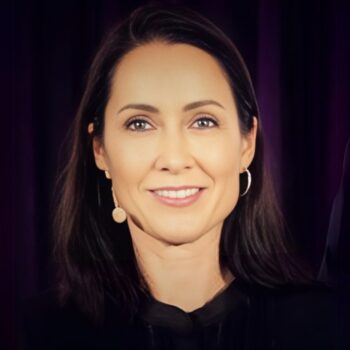
Anja Kaspersen, serving as the Director for Global Markets Development at the IEEE (Institute of Electrical and Electronics Engineers), plays a significant role in the realm of technology and AI systems governance. Her work at IEEE is centered around Frontier Issues and Emerging Spaces, where she focuses on the thoughtful advancement of technology.
As a Senior Fellow at the Carnegie Council for Ethics in International Affairs, Kaspersen co-leads the AI and Equality Initiative. This role is dedicated to fostering a nuanced approach to ethics in technology and AI governance and international affairs, emphasizing the promotion of informed public civic ethics and engaging in meaningful discourse.
Previously, Kaspersen held the position of Director at the United Nations Office for Disarmament Affairs in Geneva and served as the Deputy Secretary-General of the Conference on Disarmament. In these roles, she was pivotal in highlighting the effects of emerging technologies on international security, especially in arms control and non-proliferation dialogues.
Her extensive background includes positions with the United Nations, the European Union, the International Committee of the Red Cross, the World Economic Forum, and a diplomatic career with the Norwegian Government. Her experience in the private sector and academic roles has provided her with deep and varied insights. These experiences have equipped her with a unique blend of diplomatic expertise and proven leadership in complex processes, combining technical knowledge, anthropological curiosity, and political savvy.
Kaspersen also serves on the Standing Committee on Ethical Matters of INTERPOL,is involved with the International Military Council on Climate and Security and is an alumna International Gender Champion.
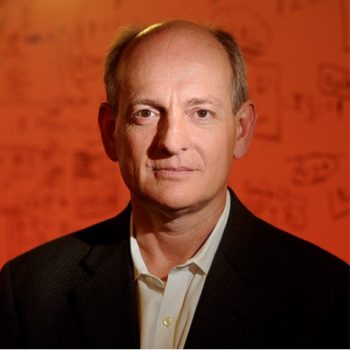
Stuart Russell received his B.A. with first-class honours in physics from Oxford University in 1982 and his Ph.D. in computer science from Stanford in 1986. He then joined the faculty of the University of California at Berkeley, where he is Professor (and formerly Chair) of Electrical Engineering and Computer Sciences and holder of the Smith-Zadeh Chair in Engineering. He is also an Adjunct Professor of Neurological Surgery at UC San Francisco and Vice-Chair of the World Economic Forum’s Council on AI and Robotics.
Russell is a recipient of the Presidential Young Investigator Award of the National Science Foundation, the IJCAI Computers and Thought Award, the World Technology Award (Policy category), the Mitchell Prize of the American Statistical Association and the International Society for Bayesian Analysis, the ACM Karlstrom Outstanding Educator Award, and the AAAI/EAAI Outstanding Educator Award. In 1998, he gave the Forsythe Memorial Lectures at Stanford University and from 2012 to 2014 he held the Chaire Blaise Pascal in Paris. He is a Fellow of the American Association for Artificial Intelligence, the Association for Computing Machinery, and the American Association for the Advancement of Science.
His research covers a wide range of topics in artificial intelligence including machine learning, probabilistic reasoning, knowledge representation, planning, real-time decision making, multitarget tracking, computer vision, computational physiology, global seismic monitoring, and philosophical foundations. His books include “The Use of Knowledge in Analogy and Induction”, “Do the Right Thing: Studies in Limited Rationality” (with Eric Wefald), and “Artificial Intelligence: A Modern Approach” (with Peter Norvig). His current concerns include the threat of autonomous weapons and the long-term future of artificial intelligence and its relation to humanity.

Francesca Rossi is an IBM Fellow and the IBM AI Ethics Global Leader.
She is based at the T.J. Watson IBM Research Lab, New York, USA.
At IBM, she leads AI research projects and she co-chairs the IBM AI Ethics board.
Before joining IBM, she has been a professor of computer science at the University of Padova, Italy. She actively participates in many global multi-stakeholder initiatives on AI ethics: she is a member of the board of directors of the Partnership on AI and of the steering committee of the Global Partnership on AI.
She is a fellow of both the worldwide association of AI (AAAI) and of the European one (EurAI), and she will be the next president of AAAI.

Bryn Balcombe is Autonomy Systems and Regulatory Expert at Oxbotica, a global leader in open autonomous vehicle software. He is the Founder of the Autonomous Drivers Alliance (ADA) and previously served as Chief Strategy Officer for Roborace, a motorsport competition for human and AI drivers, designed to accelerate the research and development of Vehicle Intelligence and human machine interfaces required for transportation of the future. His previous experience comes from Formula One where he architected and patented vehicle to infrastructure communication systems and developed the F1 Group’s first global media network. He has also consulted on technology strategy for international organisations and holds a BEng in Mechanical Engineering & Vehicle Design. Balcombe is the chairman of ITU-T Focus Group on AI for Autonomous and Assisted Driving (FG-AI4AD).

World-renowned musician and BBC TV broadcaster LJ Rich presents on the international technology show, BBC Click. In the last year she’s delivered lines at 75mph from the UK’s tallest thrill ride, performed to a drone in the sea off the Welsh Coast – and learned to rap on camera thanks to a mind-reading AI headset.
LJ’s many innovative projects coupled with a wide knowledge of tech trends bring a unique spark to her professional speaking engagements. A highly accomplished pianist, she uses music to connect the emotional and rational minds of audiences, unlocking creative thinking and solving real-world problems. She believes AI/Machine Learning can be a companion to creativity and regularly uses it to enhance her original works. LJ also loves eating and singing, trains and planes, and solving difficult puzzles.
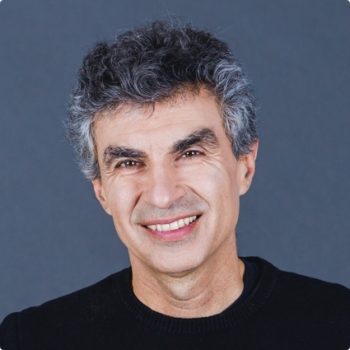
Yoshua Bengio is recognized as one of the world’s leading experts in artificial intelligence and a pioneer in deep learning. Since 1993, he has been a professor in the Department of Computer Science and Operational Research at the Université de Montréal. He is the founder and scientific director of Mila, the Quebec Institute of Artificial Intelligence, the world’s largest university-based research group in deep learning. He is a member of the NeurIPS board and co-founder and general chair for the ICLR conference, as well as program director of the CIFAR program on Learning in Machines and Brains and is Fellow of the same institution. In 2018, Yoshua Bengio ranked as the computer scientist with the most new citations, worldwide, thanks to his many publications. In 2019, he received the ACM A.M. Turing Award, “the Nobel Prize of Computing”, jointly with Geoffrey Hinton and Yann LeCun for conceptual and engineering breakthroughs that have made deep neural networks a critical component of computing. In 2020 he was nominated Fellow of the Royal Society of London.

Davar Ardalan is the Founder and Storyteller in Chief of IVOW, an early stage startup specializing in AI-driven cultural content, aiming to make navigating the global marketplace easier via cultural analysis. She is also the former Deputy Director of the White House Presidential Innovation Fellowship Program in Washington D.C.
Prior to this, she was a public broadcasting journalist for two decades at NPR News, where she designed stories anchored in multiculturalism and steeped in historical context. In 2015, her last position at NPR was senior producer of the Identity and Culture Unit. Realizing that there is a gaping hole in AI algorithms that will define our future, she created IVOW, bringing together a team of journalists and technologists to design cultural IQ in AI.
At NPR, as a Senior Producer of Weekend Edition and Morning Edition, Ardalan was responsible for editorial and production decisions that required elaborate coordination and planning, such as shaping Morning Edition broadcasts from Baghdad, Kabul and New Orleans. Ardalan has also served as Director of Storytelling at the open innovation agency SecondMuse. There, she helmed storytelling efforts for various campaigns, including NASA’s International Space Apps Challenge and Australian Aid innovation programs in Timor-Leste, Tonga and Fiji.
Ardalan, who has also served as Executive Producer at Hanson Robotics, has been recognized with a 2017 NASA Team Leadership award for Space Apps, a Gracie Award from the American Women in Radio and Television and a shout-out in the popular comic strip Zippy. In May 2014, she was the recipient of a United States Ellis Island Medal of Honor for individual achievement and for promoting cultural unity.
Ardalan began her radio career as a reporter in 1991 at NPR Member Station KUNM in Albuquerque, NM. In 1984, she was an English news anchor at IRIB News broadcasting throughout the Persian Gulf Region.
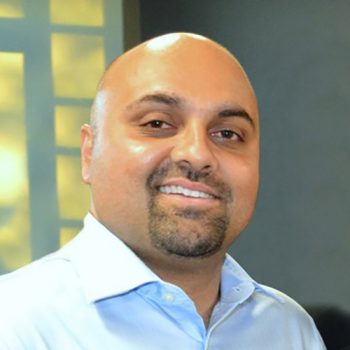
Neil Sahota (萨冠军) is the CEO of ACSI Labs, United Nations (UN) AI Advisor, IBM Master Inventor, Professor at UC Irvine, and author of award-winning Best Business book of 2019, Own the A.I. Revolution. With 20+ years of business experience, he works with organizations to create their core business strategy, enter new markets, and develop next generation products/solutions powered by emerging technology. His work experience spans multiple industries including legal services, healthcare, life sciences, retail, travel and transportation, energy and utilities, automotive, telecommunications, media/communication, and government. Moreover, Neil is one of the few people selected for IBM’s Corporate Service Corps leadership program that pairs leaders with NGOs to perform community-driven economic development projects. For his assignment, Neil lived and worked in Ningbo, China where he partnered with Chinese corporate CEOs to create a leadership development program.
In addition, Neil partners with entrepreneurs to define their products, establish their target markets, and structure their companies. He is a member of several investor groups like the Tech Coast Angels, advises venture capital funds like Miramar and CerraCap, and helped create the UN’s Innovation Factory, a global program for social impact entrepreneurs. Neil also serves as a judge in various startup competitions and mentor in several incubator/accelerator programs.
He actively pursues social good and volunteers with nonprofits. Neil cofounded the UN’s AI for Good Initiative and is actively helping them building out their ecosystem of strategic partnerships. He is currently helping the Zero Abuse Project prevent child sexual abuse as well as Planet Home to engage youth culture in sustainability initiatives. Over the last twelve years, he has served as a Board Director to several non-profit organizations such as the Inteleos and Cancer Computer as well as corporate boards from around the world like Legalmation, Lingmo, and Shineville.

In her role as Responsible AI and AI for Good Lead at PwC, Maria advises partners across industry, academia, governments, and more, on how to harness the power of AI in an ethical and responsible manner. She has played a crucial part in the development and set-up of PwC’s UK AI Center of Excellence, the firm’s AI strategy and most recently the development of PwC’s Responsible AI toolkit, firms methodology for embedding ethics in AI. Maria is a globally recognised AI ethics expert, a Advisory Board member of the UK Government All-Party Parliamentary Group on AI, member of BSI/ISO & IEEE AI standard groups, a Fellow of the RSA and an advocate for gender diversity in AI, children and youth rights in the age of AI.
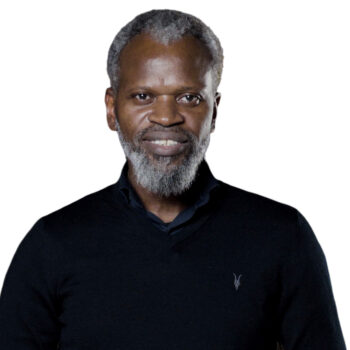
John Kamara by heart is a Tech Entrepreneur with over 20 successful years of experience working in new market acquisitions across various technology verticals in Europe, America, Asia and Africa.
John is one of Africa’s leading experts on how businesses can leverage key technology trends, instantly transform organizations and drive competitive advantage for impact in industries including finance, agriculture, health, education, gaming and startup enterprises.
John Kamara is uniquely a Pan African renowned business leader, successful entrepreneur, investor, consultant, beloved mentor and distinguished speaker holding multiple roles typically including:
- Founder and Global Chief Executive Officer Adanian Labs Founder – AI Centre of Excellence
- CEO – Cortex Africa (Leading Artificial Intelligence Company in Africa)
- Director Nonexecutive – Machine Intelligence Institute of Africa
- Director for Strategy – Data-Driven Innovation Center under CREATES Center of Excellence at the Nelson Mandela African Institute of Science and Technology
- Chevalier (Knight) Ordre Des Arts est des Technologies – Crypto Chain University
- Director for Growth – Global Gaming Africa
- Founder – Afrimart (eCommerce) | Afya Rekod (Health
- Tech) Investor – eCobba (Fintech) | Twaa (Mentoring & Learning) | PhermaAgri (AgriTech)
- John is actively involved and significantly invested in current technologies focusing on loT (Internet of Things), Al (Artificial Intelligence), Blockchain and Crowdfunding.
- Having worked in market growth leadership roles for global technology companies at Google, Sun Microsystems, eir Ireland, Digicel, BMC Software and others,
- John is committed to identifying technology challenges a critical role in catapulting Africa into the Fourth Industrial Revolution while generating a critical mass impact.
- He has tremendously excited audiences in many countries and continents as he shared insights in various global stages like Al Expo Africa, Al, For Good Global Summit, Bio2019, ICE London, Abuja Blockchain & Al Roundtable, Malta Blockchain Summit and Africa Fintech Summit to name just a few John’s current foci is how smart technologies can be leveraged in resolving some of the most prominent and pertinent socio-economic challenges in Africa; you said it various players can play a role through the empowerment of present structures and systems to build holistic sustainable ecosystems in problem solving.
- Having founded and successfully sold his first company Spade Social – a life style and entertainment-focused tech startup (2009 – 2012), John dedicates his time sharing his extensive knowledge, experiences and network with up-and-coming entrepreneurs in tech and beyond fueled by his passion to see more successful techdriven companies launch out of Africa.

Naomi Lee is Executive Editor (Digital) for The Lancet. Naomi handles peer review and commissioning for The Lancet with a special interest in surgery, health informatics and medical technology. As part of the marketing and communications team, she also leads digital transformation for The Lancet group. Naomi trained in surgery, specializing in urology and has worked in the United Kingdom, Argentina, and Mexico. She studied medicine at Cambridge University and King’s College London, and is currently studying data science at University College London. Naomi joined The Lancet in 2014.
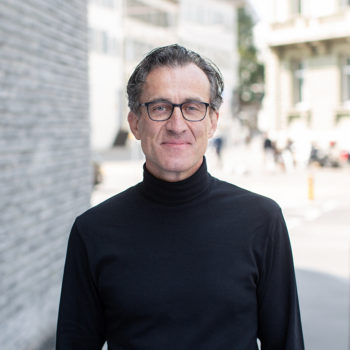
Stefan Germann, CEO Fondation Botnar a foundation in Basel Switzerland focusing on child health, nutrition and education. Stefan is tasked as first CEO to set up the management office and lead the foundation in the next stage of it’s development.
Formerly, Executive Director onegoalglobal.org (an innovative collaborative child nutrition and healthy lifestyle campaign), and Senior Director of World Vision International Sustainable Health Partnership, Innovation and Accountability unit based in Kuala Lumpur, Malaysia. World Vision operates currently in almost 100 countries.
He worked for over 15 years in Africa in various health leadership roles with different agencies in the area of child health related development, relief and advocacy work. His worked included managing a large rural hospital in Zimbabwe.
In 2005 he started to work with World Vision International’s emergency relief team as the director for the integrated technical sector teams in the Asia Tsunami response. This was a complex relief & reconstruction program where he was based in Asia. This program included major health components, including primary health care rehabilitation in Sri Lanka and mHealth projects for midwives in Aceh, Indonesia. He held a number of board and advisory board memberships (Partnership for Maternal, Newborn and Child Health, UBS Optimus Foundation, REPSSI in Africa) and currently is on the Advisory Board of the Global Health Program, The Graduate Institute – Geneva focusing on the role of NGOs in global health diplomacy. He holds a micro-engineering BSc degree, an MSc degree (Economics) in Social Policy & NGO Management and completed in 2005 a doctoral degree in Development studies focusing on child well-being in urban African context. Stefan finished in 2015 an executive Masters program in Tri Sector Collaboration at Singapore Management University.
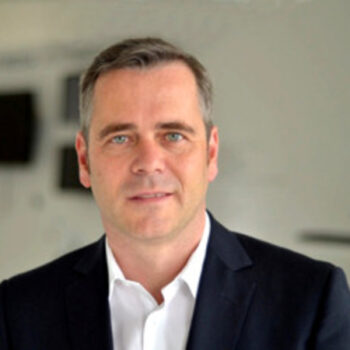
Thomas Wiegand is professor at the Technical University of Berlin and executive director of the Fraunhofer Heinrich Hertz Institute, Berlin, Germany. He heads research teams working on: video coding, machine learning, computer vision, and mobile communications.
Wiegand substantially contributed to the creation of the H.264/AVC, H.265/HEVC, and H.266/VVC standards. For H.264/MPEG-4 AVC, Wiegand was one of the chairmen of the Joint Video Team (JVT) standardization committee that created the standard and was the chief editor of the standard itself. He was also an active technical contributor to all these standards. Wiegand also holds a chairmanship position in the ITU-T VCEG and previously in ISO/IEC MPEG standardization organizations. From 2018-2023, he was the chair of the ITU/WHO Focus Group on Artificial Intelligence for Health. Since 2014, Thomson Reuters named him in their list of “The World’s Most Influential Scientific Minds” as one of the most cited researchers in his field. He is a recipient of the ITU150 Award. He has been elected to the German National Acdemy of Engineering (Acatech) and the National Academy of Science (Leopoldina).

Irakli Beridze, PhD, is the Head of the Centre for Artificial Intelligence and Robotics at UNICRI, United Nations. More than 25 years of experience in leading multilateral negotiations, developing stakeholder engagement programmes with governments, UN agencies, international organisations, private industry and corporations, think tanks, civil society, foundations, academia, and other partners on an international level. Mr Beridze is advising governments and international organizations on numerous issues related to international security, scientific and technological developments, emerging technologies, innovation and disruptive potential of new technologies, particularly on the issue on crime prevention, criminal justice and security. He is supporting governments worldwide on the strategies, action plans, roadmaps and policy papers on AI. Since 2014, Initiated and managed one of the first United Nations Programmes on AI. Finding synergies with traditional threats and risks as well as identifying solutions that AI can contribute to the achievement of the United Nations Sustainable Development Goals. He is a member of various international task forces, including the World Economic Forum’s Global Artificial Intelligence and Global Future Council, the United Nations AI Inter Agency Task Force, the High-Level Expert Group on Artificial Intelligence of the European Commission. He is frequently lecturing and speaking on the subjects related to technological development, exponential technologies, artificial intelligence and robotics and international security. He has numerous publications in international journals and magazines and frequently quoted in media on the issues related to AI. Irakli Beridze is an International Gender Champion supporting the IGC Panel Parity Pledge. He is recipient of recognition on the awarding of the Nobel Peace Prize to the OPCW in 2013.
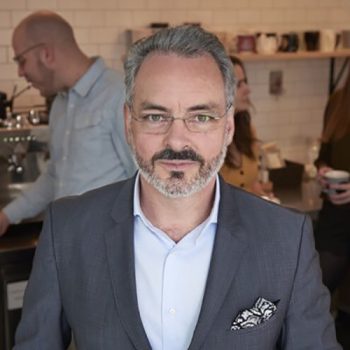
A deal-maker, passionate builder and social business advocate, Richard St-Pierre oversees C2’s international development and mobilizes the brightest and most influential minds from a wide network of countries and industries. These efforts result in a unique ecosystem of partners engaging with C2 during its annual flagship event in Montreal as well as during events of varying scale abroad. Prior to his journey at C2, Richard had accumulated more than 25 years of experience in operations, sales and corporate planning for various organizations, from governmental institutions to private corporations.

Dr. Monique Kuglitsch is the Innovation Manager at Fraunhofer HHI and Chair of the newly established ITU/WMO/UNEPO/UNFCCC/UPU Global Initiative on Resilience to Natural Hazards through AI Solutions (the successor to the ITU/WMO/UNEP Focus Group on AI for Natural Disaster Management). In her past role at the American Meteorological Society, M. Kuglitsch was the Lead Technical Editor for several journals (including the Journal of Hydrometeorology and Journal of Physical Oceanography) and the Senior International Outreach/Communications Specialist. As a researcher, M. Kuglitsch has investigated past climate change, extreme weather events, and regional climate model projections. M. Kuglitsch has experience in fluvial and limnological field work, geochemical laboratory methods, applied mathematics and statistics, and climate change.
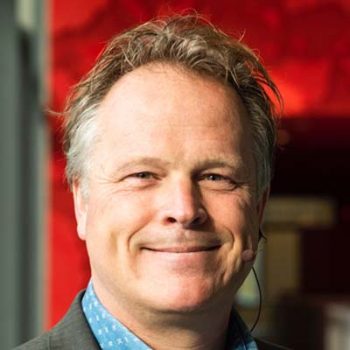
Bussemaker is a business community builder with a passion for bringing people together in the Digital Age. His goal is to explore the interaction of Information Technology, Innovation and Impact. He has initiated and helped run a number of (international) communities focused on linking Information Technology, Innovation and Impact. His current responsibilities include chair of the ‘Institute for Accountability in the Digital Age’ an association set up at the instigation of UNESCO. He has been working in the International ICT industry since the 80s. He started with a Dutch start up working in the international oil and gas industry. Since then held various marketing and alliance positions with consultancy-, software firms and associations including: CIONET where he was the Secretary General International Relations a community of over 7000 CIOs where he represented the community with international institutes like the European Commission. He is the initiator of the Global Digital Leader Alliance linking over 20.000 Digital Leaders from the China, Europe, India, Japan, Russia, South America and the US. He does (pro deo) work for number of (international) organizations and communities including YPO’s Global Impact Board and iPoort an association to discuss digitization with members of the Dutch parliament. He is a founding member and vice-chair of the outreach committee of the ITU ‘AI for Good Global Summit, Geneva. He is a regular speaker and chair at international events and has spoken in Australia, China, Europe, Ghana, India, New Zealand, South-Korea, Sri Lanka and the United States. He has an MSc in Engineering Geophysics from Delft University.

Serial entrepreneur, investor, and futurist, Stephen’s accomplishments and global leadership positions with more than 100 programs / organizations and 300+ recognitions are too numerous to list. His leadership roles working daily with more than 1 million CEOs, Investors, Scientists with the world’s leading CEO, scientific, technical and financial organizations allow him a unique vantage point to oversee where transformative innovation and investments are heading in the coming years. Stephen is the visionary behind REDDS whose tireless work has positioned REDDS to take advantage of the globally unique superior intelligence received by the group. As a small sampling representing under 1% of Stephen’s current activities, he is the:
- Founder of UN ITU, AI FOR GOOD, adopted by governments, corporations, and academia, with 3+ billion reach, as the world’s largest AI innovation solutions program, startup Innovation Factory, and daily summit driving AI top innovative business solutions such as generative AI (BingAI, Microsoft Azure OpenAI, GPT4-5) across 17 United Nations Sustainable Development Goals and empowering CEO-led impact programs for the benefit of humanity and Earth Ecosystems such as with KIN (Knowledge Impact Network) and Million PeaceMakers. Ongoing judge and Grand Finale judge from the founding of the #AIForGood Innovation Factory with the last Grande Finale winner announced at the July AIForGood 2023 in this news release.
- Founding member of WFP Innovation Accelerator advisory council in 2017 and with the November 2023 announcement of two portfolio startups winning the 1 million UK pounds prize each, top innovation Earthshot Prize. WFP is the 2020 Nobel Peace Prize recipient, multiple awardee of Apple, Good, Fast Company awards for innovation.
- From 2009 serving in roles as: current ACM practitioner board (PB) and past chair / current ACM PB chair professional development committee (PDC) / current board PDC TechTalks committee / current board ByteCast committee / current board working group head on startups-entrepreneurship; ACM is the world’s largest computing organization. From 1989 serving in roles as: past CIPS President and Chair; CIPS founding fellow advising CEO; CIPS is Canada’s national ICT organization. From 2007, serving in roles as: founder and current vice-chair IFIP IP3, founder and current chair IFIP Industry Council; IFIP is the UNESCO-founded independent federation of national and international ICT organizations with CIPS, ACM, IEEE as some of the founders. From 2004 serving in roles as: NPA board member, NPA founding fellow; NPA is a global infrastructure ICT organization. From 2016 serving in roles as: IEEE CS board committee member; current IEEE TEMS board committee member and active keynote in IEEE TEMS conferences/summits; current IEEE RASSE conference organizer/designer and opening keynote for industry forum in 2021, 2022, 2023; advisor to IEEE Entrepreneurship; IEEE is the world’s largest technology organization.
- Founder of Fintech Ideas Festival, Technology Advisory Council, providing industry solutions ten years into the future for the top 100 CEOs representing nearly US $100 Trillion in managed assets where the CEOs invested in all the transformational tech solutions and startups identified from Stephen 2015 including blockchain, digital identities, mobile financial services, AI/ML, cybersecurity, biometrics, 5/6G, quantum computing, future of fintech, future of the workforce, privacy and data analytics, personalization and precision services, new user/consumer experience from the confluence of the digital / physical / biological. Stephen directed the CEOs into execution focused working groups, monthly innovation forums, private summits. The public facing parts of this private work is captured in an article Stephen wrote for IT World in January 2017, “Top CEOs and futurists on the future of financial services and technology”, a rare public video from January 2017 private CEO summit, where Stephen provides his foresight insights to questions. The President and chair of the CEOs technology group introduces Stephen, “Introduce Stephen Ibaraki. Stephen is the entrepreneur and chairman of the Fintech Ideas Festival, a tremendous help and a lot of the people are here today came through Steve’s connections and his work in the industry. Steve’s has a fantastic executive leadership career, distinguished advisor for startups and global fortune 500 companies and governments specifically on strategy, most recently organizing the current AI for Good Summit in Geneva in June 2017 with the United Nations ITU and XPRIZE.” There is a joint article written for the CEOs which also appeared with the United Nations in 2017, “Trending: AI in finance” by Stephen Ibaraki, founding chairman FSR technology advisory council and Hari Gopalkrishnan, managing director, platforms and technology Bank of America. Article from Forbes in 2019: https://www.forbes.com/sites/cognitiveworld/2019/04/17/is-financial-services-ready-for-broad-5th-machine-age-technology-adoption/?sh=46d1cec376cf Is Financial Services Ready For Broad 5th Machine Age Technology Adoption?
- Founding chair YPO Impact Advisory Board and YPO EU Impact Summit Advisory Board, creating workable business solutions for the world’s largest opportunities/challenges and focused on purposeful leadership / business / capital & investments / innovation. YPO: 35K CEOs, US $9 Trillion annual revenue (ranking 3rd in GDP if considered a country) across 150+ countries, 500 chapters, employing 22 million. With work underway since May 2019, the first summit Oct 2020 and continuing as chair impact advisory board with first global impact summit (YPOGIS2023 in Feb 2023) and continuing in 2024 and beyond;
- Recipient of 21 Microsoft Global Awards (18 MVP Awards), 40+ overall recognitions, with six years MVP 2018-2023 in AI, with the world’s largest and top corporation in technology and advising Microsoft under NDA since the 1970s, recognizing decades of lifetime achievement, global–leadership, entrepreneurship, investments, disruptive innovation. As noted by Microsoft CEO Satya Nadella in award citations, “We recognize and value your exceptional contributions and commitment to technical communities worldwide. By sharing your real-world expertise and technical skills, you demonstrate outstanding technical community leadership. Thank you.” Judging as MVP, the largest youth innovation Award program, the Imagine Cup which empowers 2+ million students over 20 years. From Microsoft news release in Microsoft Imagine Cup Junior 2023, “The Imagine Cup Junior is more than a competition. It is a learning journey that empowers students to develop their skills in AI and other technologies. These students have shown us how AI can be used for good, to solve some of the world’s most pressing problems and create a better future for everyone. I’m proud to be a part of this journey and congratulate all the competitors – and winners — for their remarkable achievements.” Stephen Ibaraki, Founder, UN AI for Good and Imagine Cup Junior 2023 judge. Spotlighted by the Microsoft’s MVP program in 2023 for Stephen’s mentorship global contributions in serving startups, innovation and entrepreneurship: “Stephen’s mentorship initiatives have been pivotal in propelling entrepreneurship and innovations that yield significant societal benefits. His dynamic involvement spans a wide spectrum of communities, including CEOs, UN agencies, scientific/engineering entities, investors, media outlets, social media platforms, and more. He says, “Mentorship, or ‘support’ for innovation, entrepreneurship, and startups occurs at many levels. Initially, building awareness, directing freely available resources and open startup platforms, helping grow the startups presence, providing advice, supporting investment, helping startups to scale”… article continues with examples from Imagine Cup, #AIforGood Innovation Factory, WFP Innovation Accelerator, CEO Leadership Alliance, non-profit organizations IEEE TEMS, ACM, CIPS. Invited advisor, mentor, investor for the Microsoft Startup Founders Hub, founded in 2023.
- Active investor, investment / innovation / foresight advisor, serving on investment committees. Examples: Global Chair and managing general partner REDDS Capital; Adastral Funds; Southern California Master Fund (SCMF-CEO led funds of Funds); DTGO/MQDC; T&B Media Global; Terasaki Institute Biomedical Innovation (TIBI); serving on the investment selection committee for the new Canadian government sovereign funding renewed venture capital catalyst initiative (VCCI) adding up to 1.4 billion in the VC ecosystem. Canada in ranked in the top 5 in VC in the 38 countries of the OECD. Government announcements on the renewed VCCI: VCCI , Funds of Funds selection committee , Minister announcement of Fund of Funds , Minister announcement on Inclusive Growth Stream Funding. For VCCI, examples of current contributions: Member of the Canadian government’s renewed Venture Capital Catalyst Initiative (VCCI) selection committee for the fund of funds and inclusive growth streams. See a letter of thanks outlining his work here on the Inclusive Growth stream 1 and here on the Funds of Funds stream. From the Minister,” I would like to personally thank you for your participation on the renewed Venture Capital Catalyst Initiative (VCCI) selection committee for the inclusive growth stream. Your report to the Deputy Minister of Economic Development was provided to me for my consideration and review. I appreciated the recommendations the committee developed on the selection of funds for the VCCI program, which demonstrated thoughtful deliberation and consideration. I particularly welcomed the recognition of the significant role of enhancing diversity, equity, and inclusion in Canadian venture capital as part of a market-driven investment program. As a member of the selection committee, you took on an important role contributing your expertise, insights, and leadership. Your industry experience provided a valuable lens through which to assess the applications, supporting the Government of Canada in its efforts to enhance access to capital to support Canadian entrepreneurs. I would like to take this opportunity to reiterate my thanks and extend my personal appreciation for the time and effort you committed to support the renewed VCCI.”
- Examples of recent activities (at the time of profile creation: 23-11-13) for fall 2023: Host/moderator supporting organizer for O’Reilly Generative AI for Government superstream summit; opening keynote and conference organizer/designer IEEE RASSE 2023 Conference Industry Forum; MC for the private YPO UNGA summit; moderator/speaker for 6th Annual CEO LOP Summit co-hosted by Salesforce; Mentor and AMA (Ask Me Anything) for CEO Leadership Alliance OC AI region AI course; Plenary speaker at UNAOC’S 2nd Global Dialogue on Artificial Intelligence “Towards the World of #OneHumanity” on Human Centered AI
- Contributor to Forbes / Cognitive World and IT World Canada on leading new investments, innovation, entrepreneurship.
- Stephen conducts interviews with global experts since the 1970s appearing with news channels, Forbes, IT World Canada, ACM, IEEE/IEEE TEMS, IFIP, NPA, CIPS, KNVI, The Brand Called You (and their 20+ platforms) and more.
More here on lifetime achievement for innovation, investments, entrepreneurship as CIPS Founding Fellow and in LinkedIn.
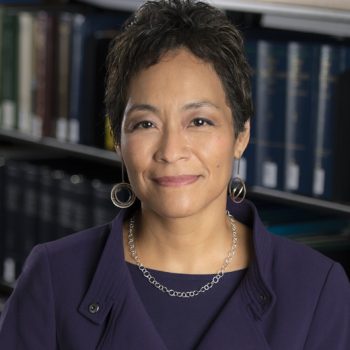
L. Song Richardson is the Dean and Chancellor’s Professor of Law at the University of California, Irvine School of Law with joint appointments in the Department of Criminology, Law and Society and in the Department of Asian American Studies. She received her AB from Harvard College and her JD from Yale Law School. Her interdisciplinary research uses lessons from cognitive and social psychology to study decision-making and judgment in a variety of contexts. Her scholarship has been published by law journals at Harvard, Yale, Cornell, Duke and Northwestern, among others. Her article, “Police Efficiency and the Fourth Amendment” was selected as a “Must Read” by the National Association of Criminal Defense Attorneys. Her co-edited book, The Constitution and the Future of Criminal Justice in America, was published by Cambridge University Press in 2013. She is a co-editor of Criminal Procedure, Cases and Materials published by West Academic Publishing. Currently, she is working on a book that examines the history of race in the U.S. and its implications for law and policy.
Dean Richardson’s legal career has included partnership at a boutique criminal law firm and work as a state and federal public defender in Seattle, Washington. She was also an Assistant Counsel at the NAACP Legal Defense and Educational Fund, Inc. Immediately upon graduation from law school, Dean Richardson was a Skadden Arps Public Interest Fellow with the National Immigration Law Center in Los Angeles and the Legal Aid Society’s Immigration Unit in Brooklyn, NY. A leading expert on implicit racial and gender bias, Richardson is frequently invited to speak to law firms, district attorney and public defender offices, police departments, universities, judges, bar associations, and private industry across the nation about the science of implicit bias and its influence on decisions, perceptions, and judgments. She also presents her work at academic symposia and non-academic legal conferences.
She has won numerous awards and recognitions, including the American Association of Law School’s Derrick Bell Award, which recognizes a faculty member’s extraordinary contributions to legal education through mentoring, teaching, and scholarship. She was recently named one of the Top Women Lawyers in California by The Daily Journal, one of the 100 Most Influential business and opinion shapers in Orange County, and one of the two most influential Korean Americans in OC.
Dean Richardson is a member of the American Law Institute. She is also on the Executive Committee of the Association of American Law Schools, an association whose goal is to uphold and advance excellence in legal education, including promoting the core values of excellence in teaching and scholarship, academic freedom, and diversity while seeking to improve the legal profession, to foster justice, and to serve local, national and international communities.

As Chief Impact Officer, Andrew oversees the sustainable development, humanitarian, ethics and human rights portfolio at Planet, a breakthrough geospatial imaging organization that has deployed the largest constellation of Earth-observing satellites in history. Together, these satellites image the entire surface of the Earth, every day, in high resolution. When analyzed with advanced AI techniques, this imagery has transformational value for addressing a host of global challenges, including monitoring peace and conflict, improving agriculture, delivering sustainable development, ensuring human rights, predicting food insecurity, assessing climate change, delivering disaster response, and improving conservation, among many others. Andrew is also the author of Resilience: Why Things Bounce Back, which has been published in more than a dozen countries worldwide.
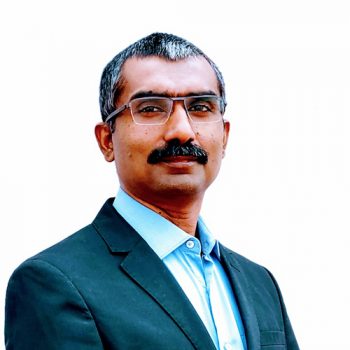
Vishnu has hands-on experience in the field of Telecom industry for more than 25 years, developing and implementing standards, and holds many international granted patents.
Vishnu currently works as an independent consultant, is a Vice Chair of ITU Focus Group on Autonomous Networks and the co-convener of ITU Correspondence Group on datasets. Previously, he was a co-editor of ITU-T Focus Group specifications on Machine learning in 5G.
His current passion includes coordinating standards initiatives, industry bodies, open source and academia, mentoring student projects and coordinating the ITU “AI/ML in 5G“ Challenge across the globe. He also curates and moderates webinars under the ITU Machine learning 5G webinar series and AI for Good.
Vishnu was nominated as Scientific Advisory Board Associate (SABA) member of Motorola Networks and is a senior member of IEEE. He holds a Masters degree in Computer Science and Engineering from Indian Institute of Technology, Delhi.
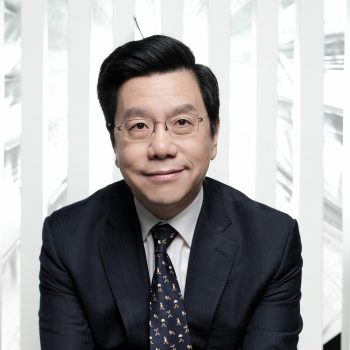
He’s the chairman and CEO of Sinovation Ventures, a leading venture capital firm focused on developing the next generation of Chinese high-tech companies.
Previously, Dr. Lee was the president of Google China and a senior executive at Microsoft, SGI, and Apple. Co-chair of the Artificial Intelligence Council at the World Economic Forum, he has a bachelor’s degree from Columbia and a PhD from Carnegie Mellon.
Dr. Lee is the author of the New York Times and Wall Street Journal best-seller AI Superpowers, which examines the role of the US and China in the future of artificial intelligence, as well as its impact on society. His latest book, co-authored with award-winning science-fiction writer Chen Quifan, is called AI2041: Ten Visions for Our Future. It presents a roadmap to educate and explore the opportunities and challenges presented by AI over the coming decades.
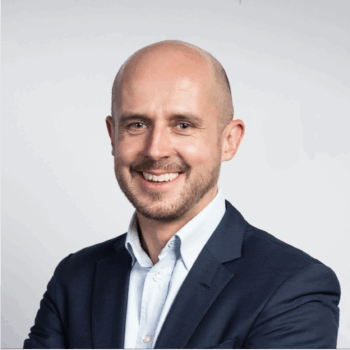
Bernhard is the Director Global Accelerator and Ventures at the United Nations (UN) World Food Programme (WFP). Since he created the Global Accelerator in 2015, it has become one of the Worlds biggest impact startup accelerators, offering 18 annual programmes.
Prior to starting the Accelerator, Bernhard co-founded the award-winning ShareTheMeal app that crowdsources funding for WFP and has delivered over 294 million meals for hungry children worldwide. His previous experience includes creating WFP’s Business Innovation Unit and working as a Project Leader at the Boston Consulting Group (BCG).
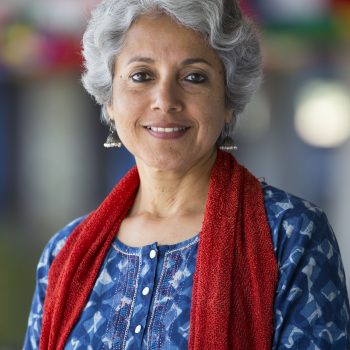
Dr Soumya Swaminathan was appointed WHO’s first Chief Scientist in March 2019. A paediatrician from India and a globally recognized researcher on tuberculosis and HIV, she brings with her 30 years of experience in clinical care and research and has worked throughout her career to translate research into impactful programmes. Dr Swaminathan was Secretary to the Government of India for Health Research and Director General of the Indian Council of Medical Research from 2015 to 2017. In that position, she focused on bringing science and evidence into health policymaking, building research capacity in Indian medical schools and forging south-south partnerships in health sciences. From 2009 to 2011, she also served as Coordinator of the UNICEF/UNDP/World Bank/WHO Special Programme for Research and Training in Tropical Diseases in Geneva.
She received her academic training in India, the United Kingdom, and the United States of America, and has published more than 350 peer-reviewed publications and book chapters. She is an elected Foreign Fellow of the US National Academy of Medicine and a Fellow of all three science academies in India. The Science division’s role is to ensure that WHO stays ahead of the curve and leverages advances in science and technology for public health and clinical care, as well as ensuring that the norms, standards and guidelines produced by WHO are scientifically excellent, relevant and timely. Her vision is to ensure that WHO is at the cutting edge of science and is able to translate new knowledge into meaningful impact on population health worldwide.
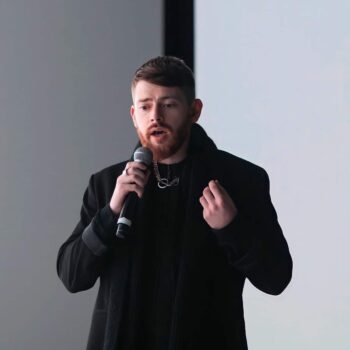
Harry Yeff is a London-born Creative Director and founder of R100 Studios. Yeff has forged a partnership with ITU, seeking out artists who push the boundaries of human and machine collaboration. Specialising in a blend of grassroots emergent curation and strategic insight for global arts and cultural initiatives and institutional collaboration. His research delves into how art, fueled by emergent technologies, can prepare society for present and future opportunities in a new creative and work landscape.
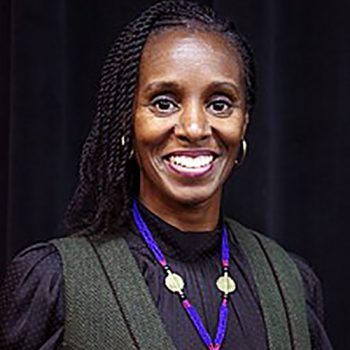
Dr. S. Ama Wray is an associate professor of dance and the University of California, Irvine. She is a former U.K NESTA Fellow (National Endowment for Science Technology and the Arts – similar to the MacArthur Awards)—an improviser, choreographer, director, teacher and scholar. She self-titles as a ‘Performance Architect’, receiving her Ph.D. from the University of Surrey where she developed her theory and practice of Embodiology®, a neo-African approach to contemporary dance improvisation. Her TED talk articulates its distinctions and philosophy http://www.tedxorangecoast.com/videopick/sheron-wray-bodily-steps-to-innovation/ In 2016 an essay on her neo-African approach to dance improvisation is in Black Dance British Routes, edited by Adair and Burt, 2017 published by Routledge. In 2014 two essays on jazz dance were published in the anthology Jazz dance: A History of its Roots and Branches, edited by Guarino and Oliver.
As a performer in the UK she danced with London Contemporary Dance Theatre and Rambert Dance Company between 1988 and 2001. Wray is widely known for her role as the leading performer and legal custodian of Harmonica Breakdown (1938), choreographed by Jane Dudley. As its custodian she continues to restage the work globally and has completed a motion capture/Labanotation research project funded by the UK Arts and Humanities research Council 2014-16. The dance is also the title subject of a documentary about Jane and this work. Her other films are for JazzXchange Special Request, depicting a journey from Nyabinghi drums to Hip Hop, shot on various locations in NY; and Red as Expected, an award winning film by Dennis Morrision with music by Byron Wallen. Re-inspired after her solo role in Wynton Marsalis’ Harvard Lecture Series in 2012 and her residency at The Institute of Advanced Study (in Princeton) she re-launched JazzXchange in the USA and is developing an interdisciplinary festival of jazz and hip hop performance in Orange County. Currently her improvisation practice is extending into clinical research with UCI medical centre, using her dance improvisation methods as a form of therapy for patients who suffer from chronic diseases. And in 2015 UK’s National Resource Centre for Dance invited her to place her archive within their permanent collection. In the realm of theatre she has successfully directed two of Mojisola Adebayo’s plays directed Moj of the Antarctic – An African Odyssey and Muhammad Ali and Me which have toured the UK and South Africa supported by the British Council.
In London between 1992 and 2004 Wray was artistic director of JazzXchange Music and Dance Company, collaborating with musicians including: Gary Crosby – OBE, Julian Joseph, Wynton Marsalis, Bobby McFerrin and Zoe Rahman. For the UK’s 2012 Cultural Olympiad Festival she was commissioned to choreograph The Brown Bomber, collaborating with Joseph once again, supported by the PRS Foundation. As a result of her 4-year NESTA fellowship, dance of the African diaspora, jazz and improvisation intersect in her concept of digitally enabled improvisation which manifests in the award-winning Texterritory. Texterritory is an interactive performance platform created in collaboration with Fleeta Siegel. Recent productions include Texterritory Congo, Digitally Ever Present and Texterritory USA.
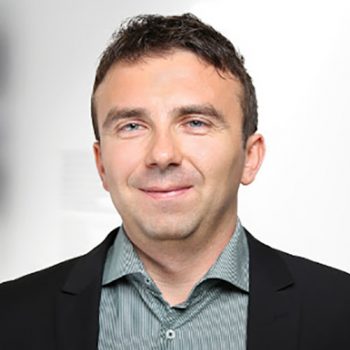
Wojciech Samek is a professor in the Department of Electrical Engineering and Computer Science at the Technical University of Berlin and is jointly heading the Department of Artificial Intelligence at Fraunhofer Heinrich Hertz Institute (HHI), Berlin, Germany.
He studied computer science at Humboldt University of Berlin, Heriot-Watt University and University of Edinburgh and received the Dr. rer. nat. degree with distinction (summa cum laude) from the Technical University of Berlin in 2014.
During his studies he was awarded scholarships from the German Academic Scholarship Foundation and the DFG Research Training Group GRK 1589/1, and was a visiting researcher at NASA Ames Research Center, Mountain View, USA. Dr. Samek is associated faculty at the BIFOLD – Berlin Institute for the Foundation of Learning and Data, the ELLIS Unit Berlin and the DFG Graduate School BIOQIC, and member of the scientific advisory board of IDEAS NCBR. Furthermore, he is a senior editor of IEEE TNNLS, an editorial board member of PLoS ONE and Pattern Recognition, and an elected member of the IEEE MLSP Technical Committee. He is recipient of multiple best paper awards, including the 2020 Pattern Recognition Best Paper Award, and part of the expert group developing the ISO/IEC MPEG-17 NNR standard. He is the leading editor of the Springer book “Explainable AI: Interpreting, Explaining and Visualizing Deep Learning” (2019), co-editor of the open access Springer book “xxAI – Beyond explainable AI” (2022), and organizer of various special sessions, workshops and tutorials on topics such as explainable AI, neural network compression, and federated learning.
Dr. Samek has co-authored more than 150 peer-reviewed journal and conference papers; some of them listed by Thomson Reuters as “Highly Cited Papers” (i.e., top 1%) in the field of Engineering.
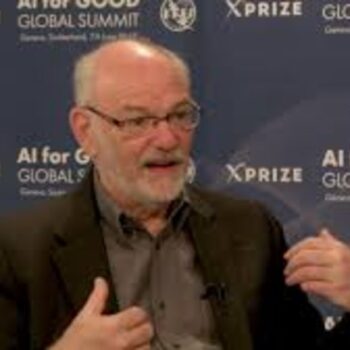
Wendell Wallach has an international reputation as an expert on the ethics and governance of emerging technologies, particularly AI. While semi-retired he continues to lecture and consult. From 2020-2024, he was Carnegie/Uehiro Senior Fellow at the Carnegie Council for Ethics in International Affairs (CCEIA) where he founded and co-directed (with Anja Kaspersen) the AI and Equality Initiative. He is also an advisor to The Hastings Center and a scholar at the Yale University Interdisciplinary Center for Bioethics where he chaired Technology and Ethics studies for eleven years. Wallach’s latest book, a primer on emerging technologies, is entitled, A Dangerous Master: How to keep technology from slipping beyond our control. He co-authored (with Colin Allen) Moral Machines: Teaching Robots Right From Wrong. The World Technology Award for Ethics was awarded to Wendell in 2014 and for Journalism and Media in 2015. More recently, Wallach has been referred to as, “a Godfather of AI Ethics.”
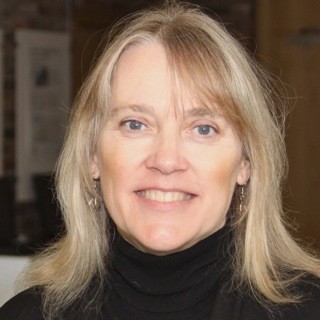
Vicki Hanson is the Chief Executive Officer (CEO) of the ACM (Association for Computing Machinery), globally serving computing professionals and students. She was President of ACM from 1 July 2016 – 30 June 2018.
Vicki was a Distinguished Professor in the B. Thomas Golisano College of Computing at the Rochester Institute of Technology (2013 – 2018), and a Visiting Professor at the University of Dundee in Scotland, and Lancaster University in England. A former Research Staff Member at IBM T. J. Watson Research Center, she has been working on issues of inclusion for older adults and disabled people throughout her career, first as a Postdoctoral Fellow at the Salk Institute for Biological Studies. She joined the IBM Research Division in 1986 where she founded and managed the Accessibility Research group. She has been at the University of Dundee since 2009 and at RIT since 2013.
She has served on research advisory boards and agenda setting committees in both the US and the UK. Her research focus is on accessibility of technology for people with disabilities, the aging population, and related research ethics. At RIT, she, along with Matt Huenerfauth and Kristen Shinohara direct the Center for Accessibility and Inclusion Research (CAIR).
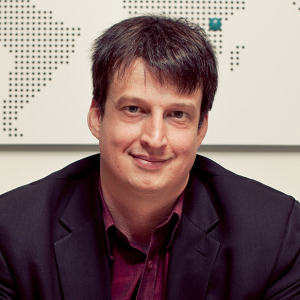
Robert Kirkpatrick is Director of Global Pulse, an innovation initiative of the United Nations Secretary-General driving a big data revolution for global development and resilience (www.unglobalpulse.org). Global Pulse’s network of innovation Labs in New York, Uganda and Indonesia, allow UN System partners to discover and mainstream applications of big data and real-time analytics for humanitarian action and sustainable development. Global Pulse’s advocacy agenda focuses on public-private “data philanthropy” partnerships, and data privacy & policy innovation to enable the harnessing of big data as a public good.
Prior to joining the United Nations, Kirkpatrick co-founded and led software development for two pioneering private-sector humanitarian technology teams, first at Groove Networks, and later as Lead Architect for Microsoft Humanitarian Systems. From 2007-2009 he served as CTO of the non-profit InSTEDD.
Mr. Kirkpatrick was a member of the UN Secretary-General’s Independent Expert Advisory Group on a Data Revolution for Sustainable Development (2014), and currently sits on InSTEDD’s Board of Directors, and the World Economic Forum’s Global Agenda Council on Data-Driven Development.
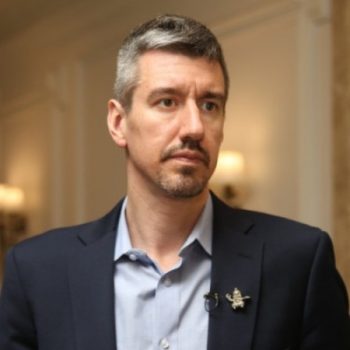
Chris (@chrisfabian) is a technology executive who co-founded and currently co-leads Giga. Giga is a partnership between UNICEF and ITU that is working to connect every school in the world to the internet.
His career has focused on how the intersection between new technology and global policy can solve the world’s most pressing problems and advance humanity. He has previously advised two UN Secretary-Generals on new technologies, founded and scaled UNICEF’s Innovation Unit, and worked with Heads of State and Fortune 100 CEOs to invest in responsible, forward-looking technologies.
Chris has built, invested in, and mentored technology companies from startup through multiple financing rounds and exits. He has led teams that developed some of the largest implementations of open-source software in the world, the first public-sector drone/UAV corridors, the first crypto-currency denominated fund in the public sector, and the Digital Public Goods Alliance with the Government of Norway.
He is a Commissioner for the Lancet-Financial Times, an Honorary Scholar at the Chinese Central Academy of Fine Arts, a Board Member of the European Parliament’s STOA Centre for Artificial Intelligence. He was recognized by Time Magazine as one of the “World’s 100 Most Influential People” in 2013 and as one of WIRED’s “25 People Changing the World” in 2019.
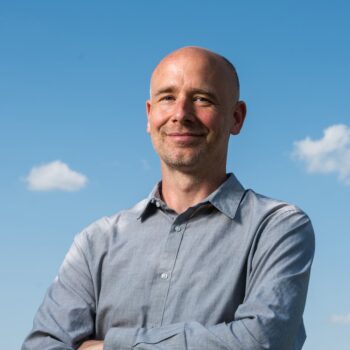
Philip Stier is Professor of Atmospheric Physics and Head of Atmospheric, Oceanic and Planetary Physics in the Department of Physics at the University of Oxford. He also heads the Climate Processes Group and serves on the steering group of the Oxford Climate Research Network.
Philip’s research addresses physical climate processes in the context of anthropogenic perturbations to the earth system as the underlying cause of climate change and air pollution. His key interests lie in aerosol and cloud physics, their interactions and their role in the climate system. Aerosols are small liquid or solid particles suspended in air of both anthropogenic and natural origin. Cloud droplets form on aerosol particles, so man-made changes in aerosol (precursor) emissions also affect the physics of clouds.
He is also Principal Investigator for a European Research Council project on the highly uncertain effects of aerosols on precipitation, and he leads the new Marie Skłodowska-Curie Innovative Training Network iMIRACLI, which brings together leading climate and machine learning scientists from academia and industry across Europe to educate a new generation of climate data scientists.
Philip is passionate about the power of interdisciplinary approaches to address complex questions around the causes and impacts of climate change. Through the Climate Processes Group, Phillip combines work on global climate models, earth observations from satellites and surface and aircraft based in-situ measurements, as well as detailed process models with theory to improve our understanding of the climate system.

I am Professor of Responsible Artificial Intelligence at the Department of Computing Science at Umeå University, Sweden, where I lead the AI Policy Lab .
I am Wallenberg Scholar (2024) and Senior Advisor on AI Policy to the Wallenberg Foundations. I am a member of the Royal Swedish Academy of Engineering Sciences (IVA), and Fellow of the European Artificial Intelligence Association (EURAI) and of ELLIS (European Laboratory for Learning and Intelligent Systems). I am also Guest Professor at the Civic AI Lab, University of Amsterdam, and Honorary Professoral Fellow at the University of Melbourne.
Given the increasing importance of understanding the societal, ethical, and legal impact of AI, I am deeply involved in international AI governance, policy, and strategy initiatives. I am currently co-chair of the ACM Tech Policy Council, member of UNESCO’s High-Level Expert Group on the Implementation of the UNESCO AI Ethics Recommendation, and member of the OECD Expert Group on AI Futures. I am also founder of ALLAI, the Dutch AI Alliance, and former member of the United Nations High-Level Advisory Body on AI, the European Commission High-Level Expert Group on Artificial Intelligence, and co-chair of the World Economic Forum Global Future Council on Artificial Intelligence. As part of UNESCO’s AI Ethics Experts Without Borders, I advise governments worldwide on the development and operationalization of national AI strategies.
My research focuses on the interconnections between people, organizations, technology, and policy, with a strong emphasis on responsible and governance-aware AI systems. My work spans from formal and computational models of agency, norms, and institutions to applied AI policy, evaluation frameworks, and socio-technical system design, combining theory, engineering, and methodological design.
I have held major leadership roles in the AI research community, including Program Chair of AAMAS 2024 and Ethics Chair of AAAI 2024, and I currently serve on multiple international advisory boards and expert panels.
In recognition of my work, I am recipient of the AI Policy Leader 2025 Award (CAIDP), AI and Ethics Professional of the Year 2022, and the Medal of Honour of the City of Oeiras (Portugal). I have published over 300 peer-reviewed articles with over 19,000 citations. My newest book, The AI Paradox, is published by Princeton University Press (2026).
I regularly speak internationally on AI ethics, governance, and policy, advise public and private organizations, and contribute to major journals, conferences, and policy processes.
I also actively communicate about AI and its societal impact and can be followed on LinkedIn or Bluesky, or through my blog Thinking in Public.
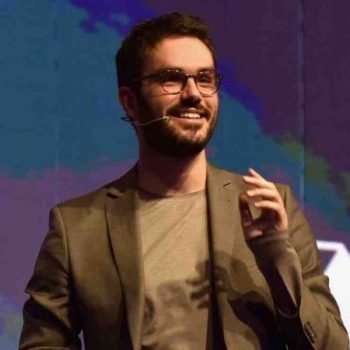
Entrepreneur passionate with art, technology, I explore various possible futures to help organisations build alternative presents through radical innovation. I’m currently gathering a team of X-Women and X-Men to prepare ANIMA.
As I’m not an artist nor a scientist I feel lucky to have worked with both kinds of talents so far, from an art gallery yesterday to a moonshot studio tomorrow, to imagine further futures and find ways for their realization today.
Committed to the idea that our Digital Renaissance should be about distributing the future evenly in the world, I went on a developing countries tour in 2013-2014 to help social businesses tackle grand challenges in Africa, Asia and Latin America.
Fascinated with the innovative possibility of bringing people closer together, I worked on making the Hyperloop a reality with HTT in 2016-17. I joined the Governmental Affairs and Business Development teams to accelerate our mobility dream across developed and developing countries. I also started the Hyperloop Academy to grow a network of labs interested in building parts of the Hyperloop with us.
Since the end of 2015, I co-organize the Post-digital research seminar at Ecole Normale Supérieure, which explores AI possible Futures at the intersection of art, philosophy and science. Since 2017, we target Artificial Imagination.
I joined the XPRIZE Foundation as an ambassador to help with the IBM Watson AI XPRIZE by gathering and mentoring amazing teams in Europe committed to positively impact a billion lives with AI by 2020.
I hope to continue discovering new paths for antidisciplinarity with amazing people and building things together for a long time!
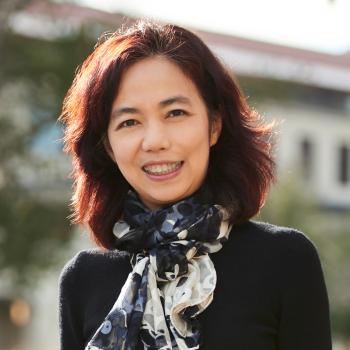
Dr. Fei-Fei Li is the inaugural Sequoia Professor in the Computer Science Department at Stanford University, and Co-Director of Stanford’s Human-Centered AI Institute. She served as the Director of Stanford’s AI Lab from 2013 to 2018. And during her sabbatical from Stanford from January 2017 to September 2018, she was Vice President at Google and served as Chief Scientist of AI/ML at Google Cloud. Dr. Fei-Fei Li obtained her B.A. degree in physics from Princeton in 1999 with High Honors, and her PhD degree in electrical engineering from California Institute of Technology (Caltech) in 2005. She joined Stanford in 2009 as an assistant professor. Prior to that, she was on faculty at Princeton University (2007-2009) and University of Illinois Urbana-Champaign (2005-2006).
Dr. Fei-Fei Li’s current research interests include cognitively inspired AI, machine learning, deep learning, computer vision and AI+healthcare especially ambient intelligent systems for healthcare delivery. In the past she has also worked on cognitive and computational neuroscience. Dr. Li has published more than 200 scientific articles in top-tier journals and conferences, including Nature, PNAS, Journal of Neuroscience, CVPR, ICCV, NIPS, ECCV, ICRA, IROS, RSS, IJCV, IEEE-PAMI, New England Journal of Medicine, Nature Digital Medicine, etc. Dr. Li is the inventor of ImageNet and the ImageNet Challenge, a critical large-scale dataset and benchmarking effort that has contributed to the latest developments in deep learning and AI. In addition to her technical contributions, she is a national leading voice for advocating diversity in STEM and AI. She is co-founder and chairperson of the national non-profit AI4ALL aimed at increasing inclusion and diversity in AI education.
Dr. Li is an elected Member of the National Academy of Engineering (NAE), the National Academy of Medicine (NAM) and American Academy of Arts and Sciences (AAAS). She is also a Fellow of ACM, a member of the Council on Foreign Relations (CFR), a recipient of the 2019 IEEE PAMI Longuet-Higgins Prize, 2019 National Geographic Society Further Award, 2017 Athena Award for Academic Leadership, IAPR 2016 J.K. Aggarwal Prize, the 2016 IEEE PAMI Mark Everingham Award, the 2016 nVidia Pioneer in AI Award, 2014 IBM Faculty Fellow Award, 2011 Alfred Sloan Faculty Award, 2012 Yahoo Labs FREP award, 2009 NSF CAREER award, the 2006 Microsoft Research New Faculty Fellowship, among others. Dr. Li is a keynote speaker at many academic or influential conferences, including the World Economics Forum (Davos), the Grace Hopper Conference 2017 and the TED2015 main conference. Work from Dr. Li’s lab have been featured in a variety of magazines and newspapers including New York Times, Wall Street Journal, Fortune Magazine, Science, Wired Magazine, MIT Technology Review, Financial Times, and more. She was selected as a 2017 Women in Tech by the ELLE Magazine, a 2017 Awesome Women Award by Good Housekeeping, a Global Thinker of 2015 by Foreign Policy, and one of the “Great Immigrants: The Pride of America” in 2016 by the Carnegie Foundation, past winners include Albert Einstein, Yoyo Ma, Sergey Brin, et al.
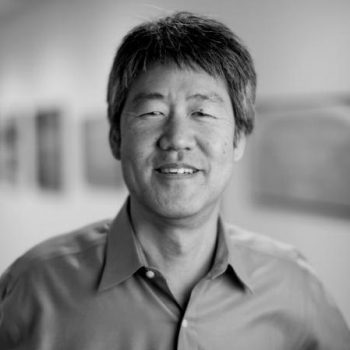
Dr. Peter Lee is Corporate Vice President, Research and Incubations, at Microsoft. He leads Microsoft Research across its eight laboratories around the world. He also oversees several incubation teams for new research-powered lines of business, the largest of which today is Microsoft’s growing healthcare and life sciences effort. Dr. Lee has extensive experience in managing fundamental research to commercial impact in a range of areas, spanning artificial intelligence, to quantum computing, to biotechnology, and more. Before joining Microsoft in 2010, he was at DARPA, where he established a new technology office that created operational capabilities in machine learning, data science, and computational social science. From 1987 to 2005 he was a Professor at Carnegie Mellon University, and from 2005 to 2008 the Head of the university’s computer science department. Today, in addition to his management responsibilities, Dr. Lee speaks and writes widely on technology trends and policies. He is a member of the National Academy of Medicine. He serves on the Boards of Directors of the Allen Institute for Artificial Intelligence, the Brotman Baty Institute for Precision Medicine, and the Kaiser Permanente Bernard J. Tyson School of Medicine. In public service, Dr. Lee was a commissioner on President Obama’s Commission on Enhancing National Cybersecurity and led several studies for both PCAST and the National Academies on the impact of federal research investments on economic growth. He has testified before both the US House Science and Technology Committee and the US Senate Commerce Committee.
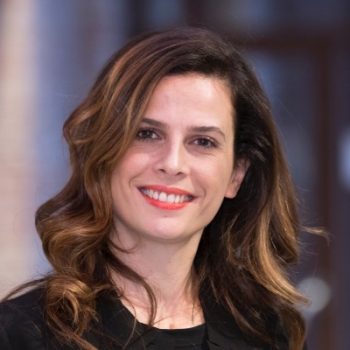
Francesca Bria is the Chairwoman of CDP Venture Capital SGR- National Innovation Fund. She is leading the DECODE project on data sovereignty in Europe. She is a Senior Adviser to the United Nation on digital cities and digital rights, and she is Assistant Professor in the Institute for Innovation and Public Purpose at UCL in London. She is an adviser for the European Commission on Innovation Policy, and she is the former Chief Digital Technology and Innovation for the City of Barcelona in Spain.
Francesca has a PhD in Innovation and Entrepreneurship from Imperial College, London and MSc on Digital Economy from University of London, Birbeck. As Senior Programme Lead at Nesta, the UK Innovation Agency, she has led the EU D-CENT project, the biggest European Project on digital democracy and digital currencies. She also led the DSI project on Digital Social Innovation in Europe, advising the EU on digital social innovation policies. She has been teaching in several universities in the UK and Italy and she has advised Governments, public and private organizations and movements on Technology and Innovation policy, and its socio-economic impact.
Francesca’s work focuses on one of the key issues of our time: how can we give people the ownership of their data? In her recent report (co-authored with Evgeny Morozov), she explores how can societies regain control not only over digital technology, data, and infrastructure, but also over the services that are mediated by smart technologies—such as utilities, transportation, education, and health
She has been listed in the Top 50 Women in Tech by the Forbes Magazine, and in the World’s top 20 most influential people in digital government by Apolitical. She has also been featured in the Italian Magazine Repubblica “D”, amongst the 100 Women Changing the World.
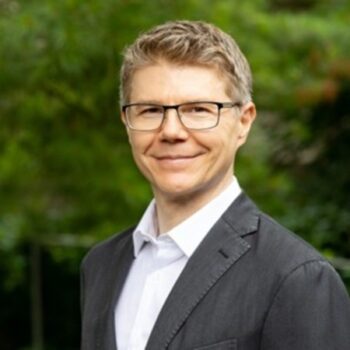
Robert Opp is the Chief Digital Officer of the United Nations Development Programme, the United Nations’ global sustainable development organization working across 170 countries globally. UNDP adopted its second Digital Strategy in 2022, which sets out a vision to create a world in which digital is an empowering force for people and planet. Rob leads the agency’s digital transformation, an organization-wide effort, to accelerate achievement of the Sustainable Development Goals and ensure no one is left behind.
Under his leadership, UNDP’s Chief Digital Office supports more than 120 countries in building open, inclusive and rights-based digital transformations. It also brings expertise, insights and lessons from the country-level to inform global digital policy, to ensure that technologies, including digital public infrastructure and artificial intelligence accelerate sustainable development. Robert also leads UNDP’s own internal digital transformation effort.
Prior to this role, Robert served as Director of the Innovation and Change Management Division within the United Nations World Food Programme (WFP) where he established an in-house ‘Zero Hunger’ innovation accelerator and created an award-winning crowdfunding smartphone app, ShareTheMeal.
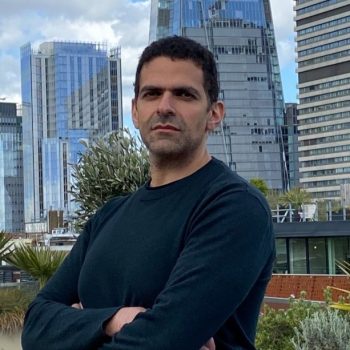
I am co-founder & CEO of Carbon Re, a climate tech start-up developing solutions to help manufacturers transition to net-zero. Our first solution combines AI and Zero Loss techniques to cut energy consumption, costs and carbon emissions in energy intensive manufacturing. See www.carbonre.tech for more details and if you’re interested in partnering get in touch at info@carbonre.tech
I previously set up and led the AI for Climate practice at Element AI and prior to that co-founded and led Amnesty Tech. I was also a World Economic Forum global future council co-chair and a fellow at Harvard Kennedy School.
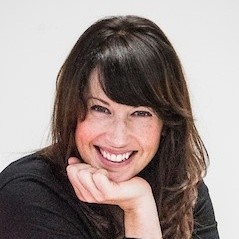
Aimee van Wynsberghe has been working in ICT and robotics since 2004. She began her career as part of a research team investigating the network variables related to surgical robots in Canada at the CSTAR (Canadian Surgical Technologies and Advance Robotics) Institute. She is Assistant Professor in Ethics and Technology and the TU Delft. She is co-founder and co-director of the Foundation for Responsible Robotics and on the board of the Institute for Accountability in a digital age and the Dutch National Alliance on AI (ALLAI). She serves as a member of the European Commission high level expert group on AI. Aimee has been named one of the Netherlands top 400 influential women under 38 by VIVA, was named one of the 25 ‘women in robotics you need to know about’, and is the 2018 winner of the L’oreal/UNESCO ‘Women in Science’. She is author of the book Healthcare Robots: Ethics, Design, and Implementation and has been awarded an NWO personal research grant to study how we can responsibly design service robots. She has been interviewed by BBC, Quartz, Financial Times, and other International news media on the topic of ethics and robots, and is invited to speak at International conferences and summits.
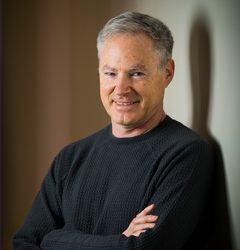
Eric Horvitz is a technical fellow at Microsoft, where he serves as the company’s first Chief Scientific Officer. As chief scientist of the company, Dr. Horvitz provides cross-company leadership and perspectives on advances and trends on scientific matters, and on issues and opportunities rising at the intersection of technology, people, and society. He has pursued principles and applications of AI with contributions in machine learning, perception, natural language understanding, and decision making. His research centers on challenges with uses of AI amidst the complexities of the open world, including uses of probabilistic and decision-theoretic representations for reasoning and action, models of bounded rationality, and human-AI complementarity and coordination.
His efforts and collaborations have led to fielded systems in healthcare, transportation, ecommerce, operating systems, and aerospace. He received the Feigenbaum Prize and the Allen Newell Prize for contributions to AI. He received the CHI Academy honor for his work at the intersection of AI and human-computer interaction. He has been elected fellow of the National Academy of Engineering (NAE), the Association of Computing Machinery (ACM), Association for the Advancement of AI (AAAI), the American Association for the Advancement of Science (AAAS), the American Academy of Arts and Sciences, and the American Philosophical Society. He has served as president of the AAAI, and on advisory committees for the National Science Foundation, National Institutes of Health, President’s Council of Advisors on Science and Technology, DARPA, and the Allen Institute for AI.
Beyond technical work, he has pursued efforts and studies on the influences of AI on people and society, including issues around ethics, law, and safety. He chairs Microsoft’s Aether committee on AI, effects, and ethics in engineering and research. He established the One Hundred Year Study on AI at Stanford University and co-founded the Partnership on AI.
Eric received PhD and MD degrees at Stanford University. Previously, he served as director of Microsoft Research Labs, including research centers in Redmond, Washington, Cambridge, Massachusetts, New York, New York, Montreal, Canada, Cambridge, UK, and Bangalore, India. He also ran the Microsoft Research Lab in Redmond, Washington. More information can be found on his home page. A list of publications can be found here.
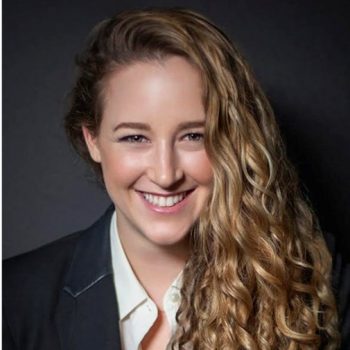
Terah Lyons is the Founding Executive Director of the Partnership on AI (PAI), a multi-stakeholder non-profit initiative focused on advancing the benefits and addressing the challenges of machine intelligence co-founded in 2016 by a coalition of technology companies, civil society organizations, and academic experts. Today, the Partnership is a global community of over 100 organizations spanning diverse sectors and disciplines, working to build capacity across the field for responsible AI development and deployment.
Prior to PAI, Terah was a Policy Advisor to the U.S. Chief Technology Officer in the White House Office of Science and Technology Policy (OSTP) during the Obama Administration. In her capacity at the White House, Terah led a policy portfolio focused on machine intelligence, including AI, robotics, and intelligent transportation systems. In her work at OSTP, she helped establish and direct the White House Future of Artificial Intelligence Initiative, oversaw robotics policy and regulatory matters, led the Administration’s work from the White House on civil and commercial unmanned aircraft systems/drone integration into the U.S. airspace system, and advised on Federal automated vehicles policy. She also advised on issues related to diversity and inclusion in the technology industry and entrepreneurial ecosystem.
Terah currently sits on the Study Panel for Stanford’s One Hundred Year Study on Artificial Intelligence (AI100), and on the Steering Committee of the AI Index hosted at Stanford’s Human-Centered AI Institute.
Previously, Terah was a Mozilla Foundation Technology Policy Fellow, and a Fellow with the Harvard School of Engineering and Applied Sciences. She worked with David Gergen at the Harvard Kennedy School of Government Center for Public Leadership examining leadership and U.S. politics, and with journalist Amy Kaslow working to chronicle domestic and international economic reconstruction, poverty, and contemporary conflict and genocide. She is a graduate of Harvard University, and was formerly on the Board of Directors of the Harvard University Alumni Association.
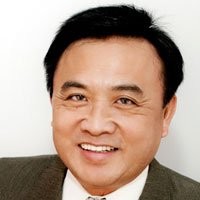
Andy Chen is the President & CEO of a global consulting firm. The firm’s principle business is to provide consulting services for utility industry worldwide. Andy is a senior business advisor for several leading global consulting firms and enterprise software vendors. Andy has over 30 years of experience in utility sectors specializing in Nuclear Power Generation. For the past eight years, Andy has been assisting leading global consulting firms in business development for the Nuclear Utilities in China and in North America. In recent years, Andy had provided advices on Enterprise Asset Management best practices for power generations to several government agencies and State Owned Enterprises (SOE) in China and Australia.
Andy is the 2016/2017 vice president of the CS Professional and Educational Activities Board. He is also a director for the Federation of Enterprise Architecture Professional Organizations’ board and a member of the Technical Advisory Council for the FinTech Ideas Festival. He also served as the chair of ABB International User Board of Directors. As an internationally recognized speaker, Chen was a keynote speaker at the World Computer Congress, the World CIO Forum, and the Digital Africa Conference.
Andy is a partner of REDDS Venture Investment partners which empower disruptive start-ups that scale worldwide and have billion dollar plus potential through team building, global business development, financing, mentoring, and strategy. Andy held the position of the Chief Technology Officer and Vice President, Enterprise Strategy and Architecture of a Canadian-based electricity generator. He also has extensive experience in a variety of engineering and systems roles within the company including managing a project to replace the obsolete direct control computers in a nuclear station which was the first successful implementation in the Nuclear Industry.
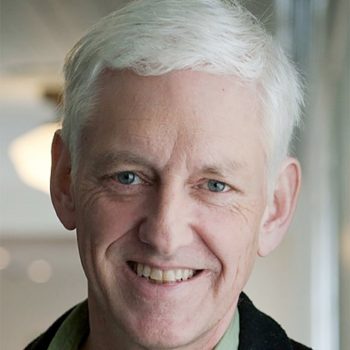
Peter Norvig is a Director of Research at Google Inc. Previously he was head of Google’s core search algorithms group, and of NASA Ames’s Computational Sciences Division, making him NASA’s senior computer scientist. He received the NASA Exceptional Achievement Award in 2001. He has taught at the University of Southern California and the University of California at Berkeley, from which he received a Ph.D. in 1986 and the distinguished alumni award in 2006. He was co-teacher of an Artifical Intelligence class that signed up 160,000 students, helping to kick off the current round of massive open online classes. His publications include the books Artificial Intelligence: A Modern Approach (the leading textbook in the field), Paradigms of AI Programming: Case Studies in Common Lisp, Verbmobil: A Translation System for Face-to-Face Dialog, and Intelligent Help Systems for UNIX. He is a fellow of the AAAI, ACM, California Academy of Science and American Academy of Arts & Sciences.
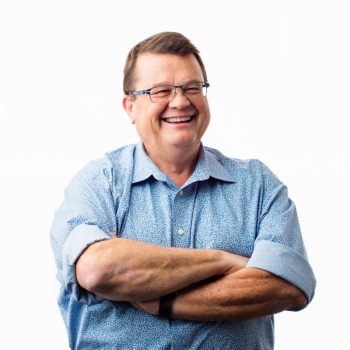
Maurizio Vecchione is the president and CEO of WGHA, guiding the alliance to achieve greater collective impact and leading all operations, programs, and partnerships. He is moved by a vision that access to effective and quality healthcare is a human right and critical to equity and progress around the world. WGHA plays a pivotal role in this vision by fostering collaboration among leading global health institutions.
Maurizio has spent the last 30 years at the forefront of global and public health, focusing on innovation to improve the lives of the world’s most vulnerable people. From 2014 until 2020, he was the executive vice president for Global Good and Research at Intellectual Ventures (IV) where he oversaw collaboration with Bill Gates to invent and deploy technology to address some of humanity’s most daunting challenges. He simultaneously led the research programs of the Intellectual Ventures Laboratory and Institute for Disease Modeling.
Maurizio has built global alliances for breakthrough programs in women’s health, infectious disease prevention and elimination, primary care, and chronic disease management. He serves on the Leadership Board of the University of Washington Department of Global Health and the Advisory Board of the UCLA Ronald Reagan Medical Center among others. He also drives leading-edge research and development through work with the Terasaki Institute for Biomedical Innovation in Los Angeles.
Throughout his career, Maurizio has blended scientific research and innovation with public policy and global development and built alliances to improve health equity globally.

Tara Chklovski is CEO and founder of global tech education nonprofit Technovation (formerly Iridescent). Prominently featured in the award-winning documentary Codegirl, Forbes named Chklovski “the pioneer empowering the incredible tech girls of the future” and Discovery Science Channel named her its first “CEO Science Super Star Hero” for her work encouraging the next generation of innovators, problem solvers, and game changers. A frequent advocate for STEM education, she’s presented at the White House STEM Inclusion Summit, SXSW EDU, UNESCO’s Mobile Learning Week, and led the 2019 education track at the UN AI for Good Global Summit. Since founding the organization in 2006, Technovation has welcomed more than 130,000 children and parents, and 14,000 mentors, to participate in its programs in 100+ countries.
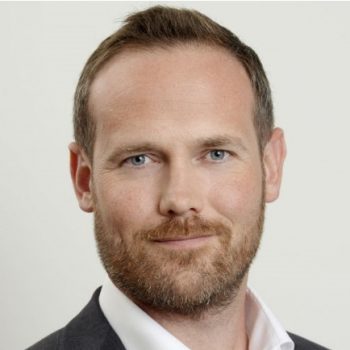
Rob is an evangelist for the responsible and ethical adoption of AI and advises companies, governments and other global stakeholders on harnessing the opportunities of the technology to drive innovation in a way that increases trust. He is a regular media commentator, keynote speaker and a highly active voice on social media.
He is particularly focused upon the issues and policies relating to the impact of automation on the workforce, the future skills agenda, and ensuring that the benefits to be delivered by AI are equitably spread across society. He is an advisory board member of the All-Party Parliamentary Group on AI, an advisor to The IEEE Global Initiative on Ethics of Autonomous and Intelligent Systems, and a Fellow of The RSA. HR Magazine recently announced him as ‘HR Most Influential Thinker 2019’.
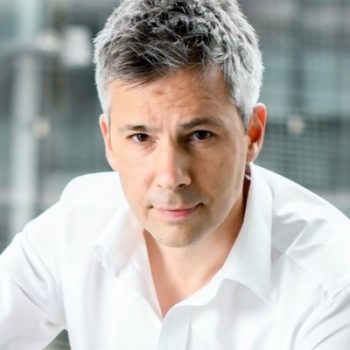
Marcel Salathé is Associate Professor at EPFL and head of the Digital Epidemiology lab. His interest lies in combining machine learning with the broad usage of online mobile technology to build innovative health systems. He is also deeply involved in online education as academic director of the EPFL Extension School.

Dr. Krishnamurthy serves as a senior technical officer and the focal point for eHealth standardization and interoperability efforts at the World Health Organization in Geneva, Switzerland. He has extensive experience in designing, implementing, coordinating, and managing national and subnational eHealth systems and services, including health information systems, emergency operations centers, and public health surveillance information systems. Dr. Krishnamurthy has also assisted numerous countries in all of the six WHO Regions in their development and implementation of national and sub-national eHealth strategies, standardization and interoperability of eHealth systems and services, and utilization of strategic information for evidence-based public health decision-making. Previously Dr. Krishnamurthy served as Senior Informatics Advisor at the United States Centers for Disease Control and Prevention (CDC) in Atlanta. He holds many prestigious honors and awards.
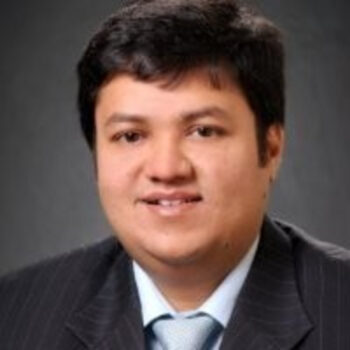
Sameer led the development and negotiations with 194 countries on the WHO Global Strategy on Digital health and is currently leading all initiatives on Ai for health at the Digital health and innovations department of WHO, he is also the Vice chair – WHO and ITU Focus group on AI4 Health
Sameer joined WHO headquarters in Geneva in Feb 2008. With WHO, he has worked extensively on Digital Health including mHealth, Big Data and AI and setup several digital global initiatives. He has provided in country support in over 75+ countries across all WHO regions of WHO & has provided oversight for work with several partners. Has contributed close to 100 publications, guidance and reports on digital health and Ai and is a core digital enthusiast and has been coveted with the WHO DGs reward for excellence in 2016 and the Greenpeace Innovations Award in 2018 for his work.
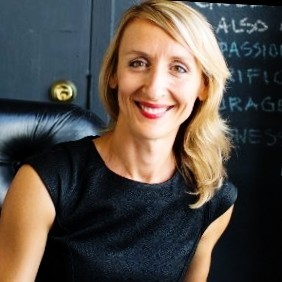
Leila Toplic is a global technology and social impact executive with 20 years of experience in technology and nonprofit sectors. She founded and leads the Emerging Technologies Initiative at NetHope (a consortium of 60 global NGOs), working with leaders from nonprofit, business, academia, and government to advance responsible development and use of emerging technologies for societal good. She is a frequent speaker at conferences on the intersection of emerging technology, ethics, and education. She was recently named 100 Brilliant Women in AI Ethics for 2021.
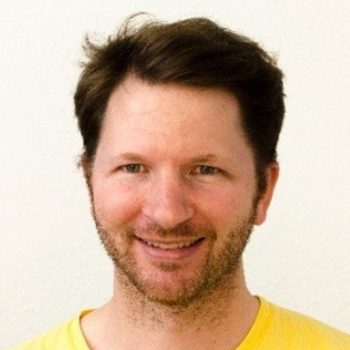
Trent McConaghy is working on democratizing data via Ocean decentralized data economy for artificial intelligence, BigchainDB decentralized database, and advising Estonia E-residency. These are building blocks towards his long-term goal – to help ensure that humanity has a role in an increasingly autonomous world. He started his career by doing AI research for national defense in the 1990s, while still an undergraduate. Then, in his first startup (ADA), he explored the relation between human creativity and AI-based machine creativity. Synopsys acquired ADA in 2004. He extended that work during his PhD from 2004-2008, and found a way to reconcile machine creativity with existing engineering knowledge. In his second startup (Solido), he leveraged AI to help drive Moore’s Law, which was under threat due to high manufacturing variations. Now, Solido software is used for most modern chip designs. Siemens acquired Solido in 2017. His third and current startup is all about democratizing data for the planet. He has hatched ascribe (2013), BigchainDB (2015) and Ocean (2017).
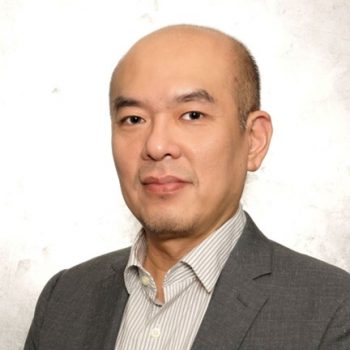
David Li has been contributing to open source software since 1990. He is member of Free Software Foundation, committer to Apache projects and board director of ObjectWeb. In 2010, he co-founded XinCheJian, the first hackerspace in China to promote hacker/maker culture and open source hardware. In 2011, he co-founded Hacked Matter, a research hub on maker movement and open innovation. In 2015, he co-founded Maker Collider, a platform to develop next generation IoT from Maker community. He is also the executive director of Shenzhen Open Innovation Lab which facilitate the collaboration between global smart hardware entrepreneurs and Shenzhen Open Innovation ecosystem.
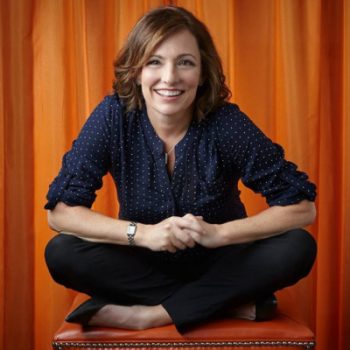
Author, journalist, and speaker Joelle Casteix is one of the leading global advocates and spokespeople for survivors of child sexual assault and cover-up. A survivor of child sexual abuse in the Catholic Church, her own fight for justice led her to a career helping other victims who lack a voice.
Joelle is a media staple and legislator go-to for her insights. Her expertise includes how institutions such as the Roman Catholic Church, public schools, and other organizations cover up and enable child sexual assault; the role parents play in prevention; and how to eradicate and end the cycle through emerging technology and strong victim-friendly legislation. She has testified on behalf of victim-friendly legislation in numerous states and was the sole victim selected to testify on behalf of California’s AB 218, a landmark three-year civil window for survivors of child sexual abuse in the state.
As a founding member of the board of directors of the Zero Abuse Project, she helped launch ZeroAbuse.ai, an innovative AI tool that evaluates the risk factors that suggest potential predatory individuals within an organization and those associated with cover-up.
In her role at Zero Abuse, Joelle has presented to numerous United Nations member agencies across Europe. She has become a leading expert on digital accountability, speaking at The Hague and to international audiences focusing on AI and digital integrity.
Joelle is the award-winning author of the bestsellers The Well-Armored Child: A Parent’s Guide to Preventing Child Sexual Abuse (RiverGrove Books) and The Power of Responsibility (based on her wildly successful TEDx talk.). She is also the author of numerous white papers on matters concerning institutional child sex abuse and cover-up. Joelle is also a member of the adjunct faculty of the UCI School of Law. Her TEDx talk is being used by therapists in the clinic setting to help survivors of abuse and assault.
Joelle’s other books include: The Compassionate Response: How to help and empower the adult victim of child sexual abuse, and Scram! A Parent’s Quick-Start Guide to Preventing, Identifying, and Ending Bullying.
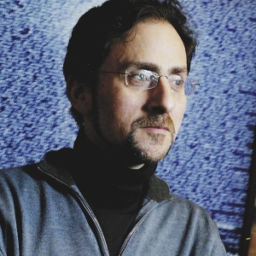
I am a physicist with a background in nanotechnology, and a passion for citizen science. I also have broad experience in science management, teaching and communication, in the United States, China, Japan, Germany, Denmark and Switzerland. During the past decade, I have managed the development of a series of online citizen science projects in a wide range of research fields, starting with the launch of LHC@home in 2004 while I was a manager at CERN. In 2009, I established a partnership for citizen science between CERN, the UN Institute for Training and Research (UNITAR) and the University of Geneva, now called Citizen Cyberlab. As an invited professor at the Centre Universitaire d’Informatique (CUI) of the University of Geneva since 2014, I coordinate Citizen Cyberlab, managing the development of technologies for crowdsourced research, exploring the broader impact of citizen science for society, and promoting public participation in science through hands-on events. I also teach courses on Open Science and Citizen Science at the bachelor and master level. Since 2016 I am Director of the Geneva Tsinghua Initiative, a comprehensive education programme for the UN Sustainable Development Goals. From 2016-18 I was Director of Digital Strategy for the University of Geneva.
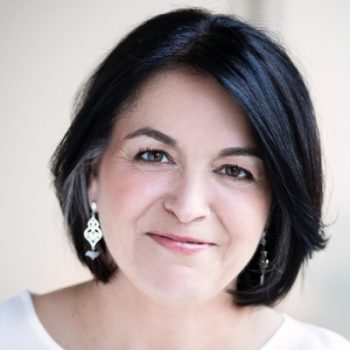
Myriam Côté is a strategic consultant in AI, facilitator, coach and speaker. She has over 15 years of professional experience in AI, among which 10 years as Executive Director at MILA with professor Yoshua Bengio (recipient of theTuring Award 2019)
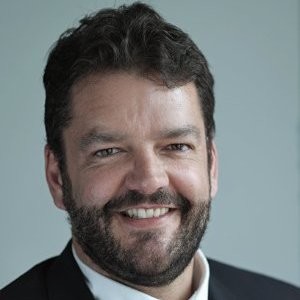
David Jensen is the Head of the Environmental Peacebuilding Programme at UN Environment. Since 2009, David has been a leader in a global effort to establish a new multidisciplinary field of environmental peacebuilding. This field aims to promote environmental and natural resource management to prevent, mitigate, resolve, and recover from conflict. It also seeks to use shared dependence on natural resources and ecosystems as a platform for cooperation and confidence building among communities and countries. David is one of the core faculty members of the Massive Open Online Course on Environmental Security and Sustaining Peace – currently the most popular course offered by the SDG Academy with over 17,000 enrollments. David is also a founding board member of the Environmental Peacebuilding Association established in 2018. He can be followed on Twitter (@davidedjensen) or on LinkedIn. He also gave a TEDx talk entitled “Natural resources and peacebuilding: is the United Nations united?”
He is the coordinator or co-author of six flagship policy reports on risks and opportunities from natural resources across the conflict life cycle. He is also a series co-editor of a six-volume set of books on post-conflict peacebuilding and natural resource management, with 150 chapters from 225 authors published by Routledge. This material covers 60 conflict-affected countries and 12 natural resource categories. The cases are open source and can be freely downloaded. David has worked with and advised all of the key peace and security institutions of the UN, including the peacebuilding, peacekeeping, and mediation communities, as well as UN country teams, Resident Coordinators and Special Representatives of the Secretary General. A summary of his publications is available here.
Since 2016, David has been pioneering efforts to identify environmental applications of frontier technologies in conflict-affected countries and fragile states, including big data, cloud computing, artificial intelligence, the internet of things, block chain, virtual reality, and citizen science. He has been advising the UN Science-Policy-Business Forum on the Environment on these topics since 2018 and was the co-author of a flagship discussion paper entitled The Case for a Digital Ecosystem for the Environment.
In order to take forward this work, David co-founded and co-directs the MapX platform that helps stakeholders map and monitor natural resources and environmental change using the best available planetary data, frontier technologies, and open source software. MapX is currently being used to power the UN Biodiversity Lab launched in July 2018 and was recently featured in the Journal of Software X. The platform was also a finalist for the UN Secretary General’s innovation award in 2018.
David holds an M.Sc. in Biology from Oxford University (UK) and an undergraduate degree in Geography from the University of Victoria (Canada). He is an Alumnus of the Peace Mediation Platform (Swiss Federal Department of Foreign Affairs) and a Beahrs’ Environmental Leadership Fellow at the University of California, Berkeley. He was also certified as a Project Management Professional (PMP).
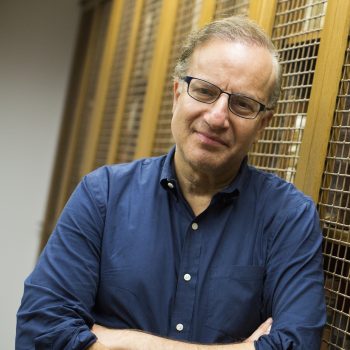
Isaac Kohane, MD, PhD is the inaugural Chair of the Department of Biomedical Informatics and the Marion V. Nelson Professor of Biomedical Informatics at Harvard Medical School. He develops and applies computational techniques to address disease at multiple scales—from whole healthcare systems as “living laboratories” to the functional genomics of neurodevelopment with a focus on autism. Kohane’s i2b2 project is currently deployed internationally to over 120 major academic health centers to drive discovery research in disease and pharmacovigilance (including providing evidence on drugs which ultimately contributed to “boxed warning” by the FDA). Dr. Kohane has published several hundred papers in the medical literature and authored a widely-used book on Microarrays for an Integrative Genomics. He is a member of the Institute of Medicine and the American Society for Clinical Investigation.
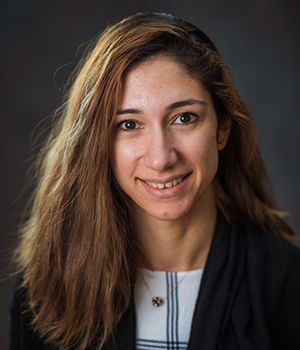
Maha Farhat holds an MD from the McGill University Faculty of Medicine and a MSc in biostatistics from the Harvard Chan School of Public Health. She is also a practicing physician at the Massachusetts General Hospital Division of Pulmonary and Critical Care Medicine. Dr. Farhat’s research focuses on the development and application of methods for associating genotype and phenotype in infectious disease pathogens, with a strong emphasis on translation to better diagnostics and surveillance in resource-poor settings. To date, Farhat’s work has focused on the pathogen Mycobacterium tuberculosis and spans the spectrum from computational analysis to field studies. She is PI and Co-Investigator on several large projects funded by NIH including the NIAID and the BD2K initiative.


